MAIAZINE
HIGH SCHOOL STUDENTS
Student opinions of AI, and how are they using it. It may not be what you think.
How one student used AI in her quest for social equity.
CAN PEOPLE TELL IF AI WROTE IT?


Can teachers really tell if a student used ChatGPT?
Can you?
THINKING OF STUDYING AI?

University students talk about exploring AI in college.
WHY WAIT? LEARN AI NOW
Tips for getting a head start by learning about AI now.
A MAGAZINE FOR HIGH SCHOOL STUDENTS
SEPT ISSUE, 2023
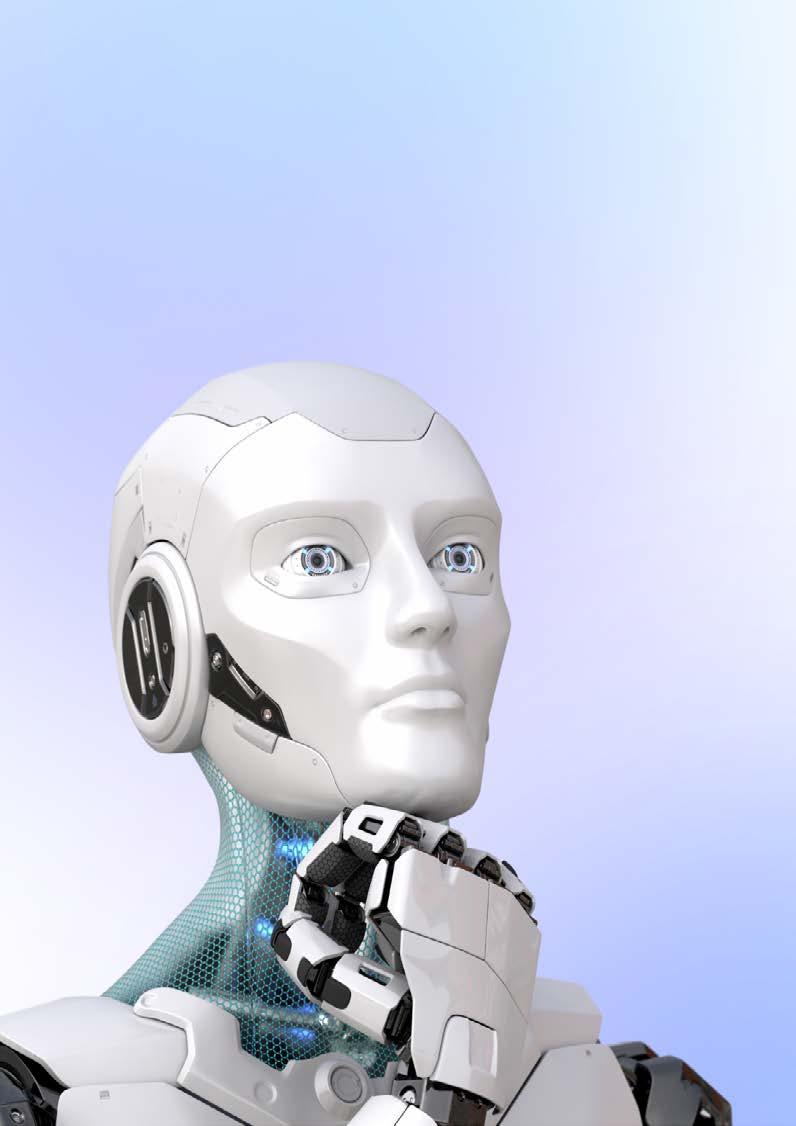
“I believe that at the end of the century the use of words and general educated opinion will have altered so much that one will be able to speak of machines thinking without expecting to be contradicted.”
- Alan Turing
CONTENTS
STUDENT OPINION PIECES
Navigating New Frontiers
By Jessica Herr
What Teens Really Think About Using AI
By Riley Zimmerman Jr
Why ChatGPT Doesn’t Interest Me
By David Li
Algorithms Can TheyChange Your Mind?
By Matthew Yu
Friendship 2.0
By Victoria Deckard
Can You Tell When It Is Written By AI?
By Cynthia Zhang
HELPFUL TIPS
Step by step instructions for students wanting to get started on learning about AI in high school 31
Quick learning modules on AI from EPFL 74
Here are some AI activities that you could complete to add to your resume 75
Features
How AI Can Be Used To Advocate For Social Equity
How Hannah Flitman used Ai to uncovering systemic bias in order to fight for social equity.
Studying a Bachelor’s Degree in AI
Samarth Bhatia’s reflections on studying AI as a major in his Bachelor Degree.
AI: A Catalyst For Chemical Engineering

We spoke to Sam Andersson who recently explored the intersection of AI and Chemical Engineering.
How Engineering Led To A Masters In AI
Paul Gailey, studying his Masters of Data Science shares his journey into the world of AI.
SPOTLIGHTS
UNIVERSITY
UNIVERSITY
LUCERNE EHL IE UNIVERSITY BUCKNELL UNIVERSITY NORTHEASTERN UNIVERSITY UNIVERSITY OF CHICAGO UNIVERSITY COLLEGE ROOSEVELT UNIVERSITY OF ARIZONA BISHOP’S UNIVERSITY HKUST
BOCCONI
MCPHS LEIDEN
SHL
6 12 17 22 30 32 38 44 48 54 58 66 70
4 10 11 17 22 30
Navigating New Frontiers
By Jessica Herr, Grade 10, Bellevue Senior High School, Bellevue
Artificial intelligence (AI)you’ve certainly heard of it by now. AI is a world of complex algorithms and potential possibilities that has the power to revolutionize our lives.
Imagine living in a society where machines are capable of understanding, learning, and even thinking like humans. That’s what artificial intelligence is all about. To be honest, much of that world is already here.
AI is basically technology that mimics human cognition by processing a lot of data
to make decisions, recognize patterns, and solve complex problems. It’s like we are crafting digital brains that could reshape industries, transform how we interact with technology, and propel us into the era of innovation.
In healthcare, AI has greatly improved the accuracy of medical image analysis, assisting radiologists in diagnosing conditions like cancer from X-rays, MRIs, and CT scans.
In finance, AI-driven algorithms analyze market data to make difficult trading
decisions. Renaissance Technologies’ Medallion Fund is an example that utilizes quantitative AI models for trading and therefore consistently generating high returns.
In entertainment, AI can suggest movies, music, and videos based on user preferences and viewing habits. Companies such as Netflix, YouTube, TikTok, Instagram, and others employ AI to recommend content to subscribers (which I am certain you have experienced and used before).
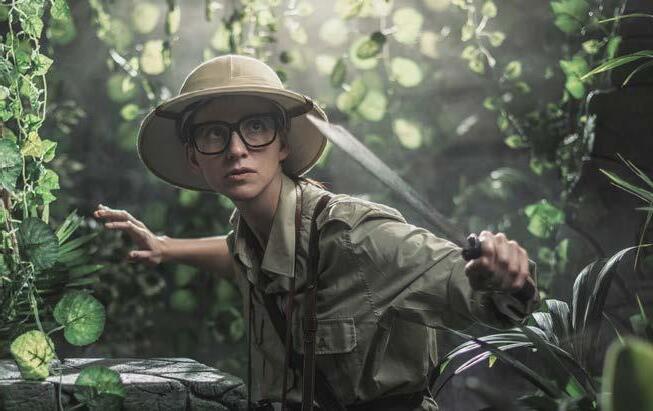
4
So, how does AI actually work?
It’s a collection of algorithms that learn from data we provide; it is similar to how we consume knowledge, training ourselves to know a certain subject. Similar to the way we study for exams, AI algorithms learn to recognize cats from dogs, play chess like grandmasters, or even sometimes diagnose diseases more accurately than doctors (crazy, right?).
This fusion of data and algorithms creates what we call machine learning, a subset of AI that enables computers to learn from experience. This is basically teaching your phone to predict your preferences and respond to your commands— like Snapchat’s new AI bot!
However, AI isn’t all perfect yet. It currently raises questions and doubt about ethics and bias. Just as
we are influenced by our experiences, AI systems adopt biases or stereotypes that are in the data they learn from. For example, images of cooking or household chores online have more images of women in them, while images of business and work have men in them. If images and data like this are given to the AI for learning, then it will create stereotypes and prejudice, which will affect our world negatively.
As young scholars who are doing our part to build a fair world, it’s our duty to ensure that the AI we create respects diversity and fairness that our community wants to embrace.
There are people who seem to be afraid of the advances of technology, fearing its replacement of humans. I would like to think that this is not as scary as people think it could be. I believe it’s crucial
to understand and appreciate the significance of having a partnership between humanity and artificial intelligence.
In this era of innovation, it’s important to understand that the goal of AI isn’t to replace humans, but rather to serve as a powerful tool that helps our capabilities to greater heights. While AI exhibits the astounding ability to go through volumes of data within seconds, it lacks the qualities that define humanity, namely, empathy and creativity.
By recognizing how the partnership between humans and technology can complement each other so well, we can unlock the door to a future where innovation flourishes, bright solutions emerge, and the essence of what it means to be human is deepened rather than diminished.
How Do Chatbots Become Prejudiced, Racist And Sexist?

The news has reported multiple examples of chatbots becoming racist and sexist within a very short amount of time.
This is because of the huge amount of data needed to train these chatbots. AI will learn from the examples it is given; and a lot of the data comes from places like Twitter and Reddit.
Will Douglas Heaven from the MIT review wrote, “Tools
like GPT-3 are stunningly good, but they feed on the cesspits of the internet.” And it isn’t necessarily an easy problem to solve. But, many are trying to do so.
For example, earlier this year, the creators of ChatGPT wrote a blog post saying, “the concerns raised ... have uncovered real limitations of our systems.”
Learn how they plan to improve ChatGPT.

5
– DEGREE PROGRAMS IN ECONOMICS, FINANCE, POLITICAL SCIENCE, ARTIFICIAL INTELLIGENCE AND
– SUMMER SCHOOL PROGRAMS
– A GLOBAL NETWORK
• 280+ PARTNER UNIVERSITIES
• 4,000 EMPLOYERS
• 130,000+ ALUMNI
– VIBRANT AND SUSTAINABLE MILAN

Discover Bocconi ranked top 5 in MAKE A SMART MOVE
SMART MOVE, MOVE TO MILANO

ECONOMICS, MANAGEMENT, SCIENCE, DATA SCIENCE, AND LEGAL STUDIES

PROGRAMS UNIVERSITIES
SUSTAINABLE CAMPUS IN DOWNTOWN
www.unibocconi.eu
Bocconi University, Europe
MACHINE LEARNING HUMAN TEACHING
Founded by a visionary entrepreneur, Bocconi academics and research in the social sciences. today we integrate the latest technology with edge and providing our students with the skills
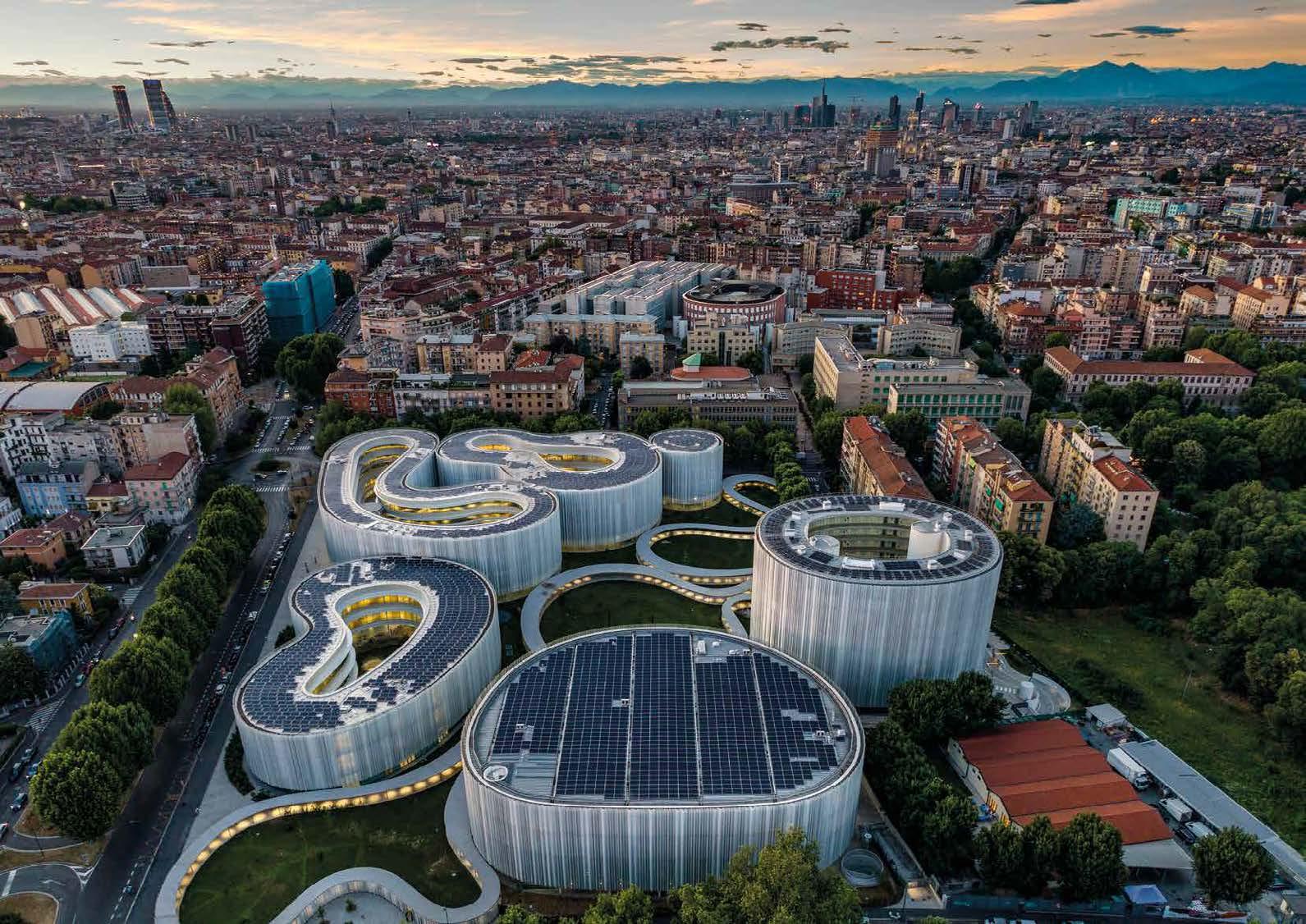
Whatever your choice, you will learn from modern higher learning. A Bocconi education
THE BEST EDUCATION FOR THE INNOVATION AND RESEARCH
• A recently established Department in Computing Sciences deals disciplines with a multidisciplinary spirit
• Artificial Intelligence and Machine Learning contribute to innovative
• The Department’s faculty teach STEM courses offered at the undergraduate and graduate levels
STEM FOCUSED PROGRAMS
BACHELOR OF SCIENCE
• Economics, Management and Computer Science
• Mathematical and Computing Sciences for Artificial Intelligence
LEARNING NEEDS TEACHING
THE DIGITAL AGE IS AT BOCCONI
Bocconi University is recognized internationally for its sciences. Innovation and entrepreneurship are in our DNA: with a human touch, offering programs at the leading skills needed to successfully navigate the job market. expert faculty, attending programs at the forefront of education is a springboard to your future!

deals with STEM innovative research undergraduate
OUR OFFER
• Programs in advanced digital and technological areas, such as computer science, artificial intelligence and data science
• All BSc programs include a compulsory programming course and cuttingedge learning technologies
Intelligence
MASTER OF SCIENCE
• Artificial Intelligence
• Economics and Management of Innovation and Technology
• Data Science and Business Analytics
• Cyber Risk Strategy and Governance – in partnership with Politecnico di Milano

What Teens Really Think About Using AI
By Riley Zimmerman, Grade 11, Clayton High School, St. Louis
Artificial intelligence, or AI, is a relatively new tool to the general public that has more and more people turning to AI for questions, concerns, and everyday tasks.
In terms of school, AI can be a taboo and stress-inducing topic. Not only can using AI result in a failing grade, but it can also give the student a bad reputation.
Charlie, a junior at a public high school in the Midwest, gives her insight on the use of AI, “I've used AI only for generating titles for essays or speeches. I've definitely thought about using it for essays, but if I'm completely honest, I'm nervous about using it for school-related things just because I don't want to have that reputation of being that person who slacked on everything and get better grades than people who actually put in the honest effort”.
Charlie isn't the only student I interviewed who is nervous about using AI. Sari, a
sophomore says, “I am just too scared of the potential consequences there could be.”
Many students disapprove of using AI to write a paper. All the students I interviewed agreed that using AI to write a paper is cheating. “I think that essay writing is an important life skill,” said Sage, a senior. “It's cheating because it is presenting something that isn't your work as your work”.

AI not only fabricates student-written prompts but does so in ways that invite criticisms. “I would never let AI write a paper because AI’s writing is emotionless and boring”, Henry, a junior, said.
Although many students were nervous about the consequences of AI, there are some who use it. “It can give me inspiration when I'm experiencing some brain fog or simple burnout and is helpful for producing literary responses without having to search the stretches of the internet,” Meyers said.
10
Gabe , a junior at different public high school had another opinion. He said, “I have used AI in my schoolwork. When I took French and couldn't understand an assignment, or if I had a hard time with certain conjugations.” He noted, “Why do the work yourself when you can have a computer do it perfectly for you?”.
Everyone interviewed said their teachers are against any usage of AI. “In almost every introduction lesson my teachers had during the first week of school this year, there was a cut-to-the-chase segment about no AI use whatsoever,” Meyers said.
Some teachers make it harder for students to do their own work because the teacher is scrutinizing everything. “Since AI has become more popular, teachers are more suspicious and there are more rules you must follow while writing essays,” said Henry.

In the end, the hidden potential for greatness and flaws has not yet been discovered. So, for now, the students I surveyed seem to be exclusively using AI for ideas. Right now, all the students I interviewed are too scared to actually use it to write papers.
I think one student’s comment speaks for all the different concerns brought up and something every student thinking of using AI should seriously think about. He said, “It is an easy way to avoid doing difficult and time-consuming work. It can become a crutch that eventually holds you back when it isn’t available and you to actually use your brain.”
Why ChatGPT Doesn’t Interest Me
Some students say that they cannot function without ChatGPT, yet as a student, I choose not to use it. Sure, with over 100 million users (as of 2023), it is evident that many people hold it in high regard, yet I do not see the appeal of using this tool.

Despite my lack of interest, there are indeed many valid uses of ChatGPT. For instance, some of my teachers make great use of this tool: they may use it to come up with ideas for activities in certain classes or make a lesson plan with just a simple command. Using ChatGPT to complete mundane tasks may be great for teachers because they can then spend time on other useful things. However, students probably use this tool as a simple shortcut to quickly finish a piece of work assigned to them because artificial intelligence can write basic essays with relevant quotes or solve certain maths problems with an effortless click of a mouse.
But it doesn’t satisfy my needs. I am not a busy teacher struggling to find the time to create the most compelling lessons, nor am I a student struggling enough to need help from AI. I am also skeptical of its accuracy. For instance, it has been shown to give incorrect mathematical conclusions. It is also well known that it creates convincing but non-existent quotes on its own.
Furthermore, I believe that any written work done by ChatGPT won’t be as good as that done by a capable student: AI is not familiar with the nuances of essay structures and often lacks the insight necessary to obtain a top grade. Above all, the use of ChatGPT inhibits learning: many do not seek to alter the machine’s work or digest or understand the relevant topics.
Like me, students who strive to attain the highest marks possible in all their exams, likely will not use this tool after realizing that it is far more effective to do their work and learn to use their time well than rely on ChatGPT.
by David Li, Year 12, King’s College, Auckland
11
A world-class education is closer than you think
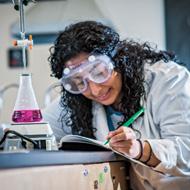
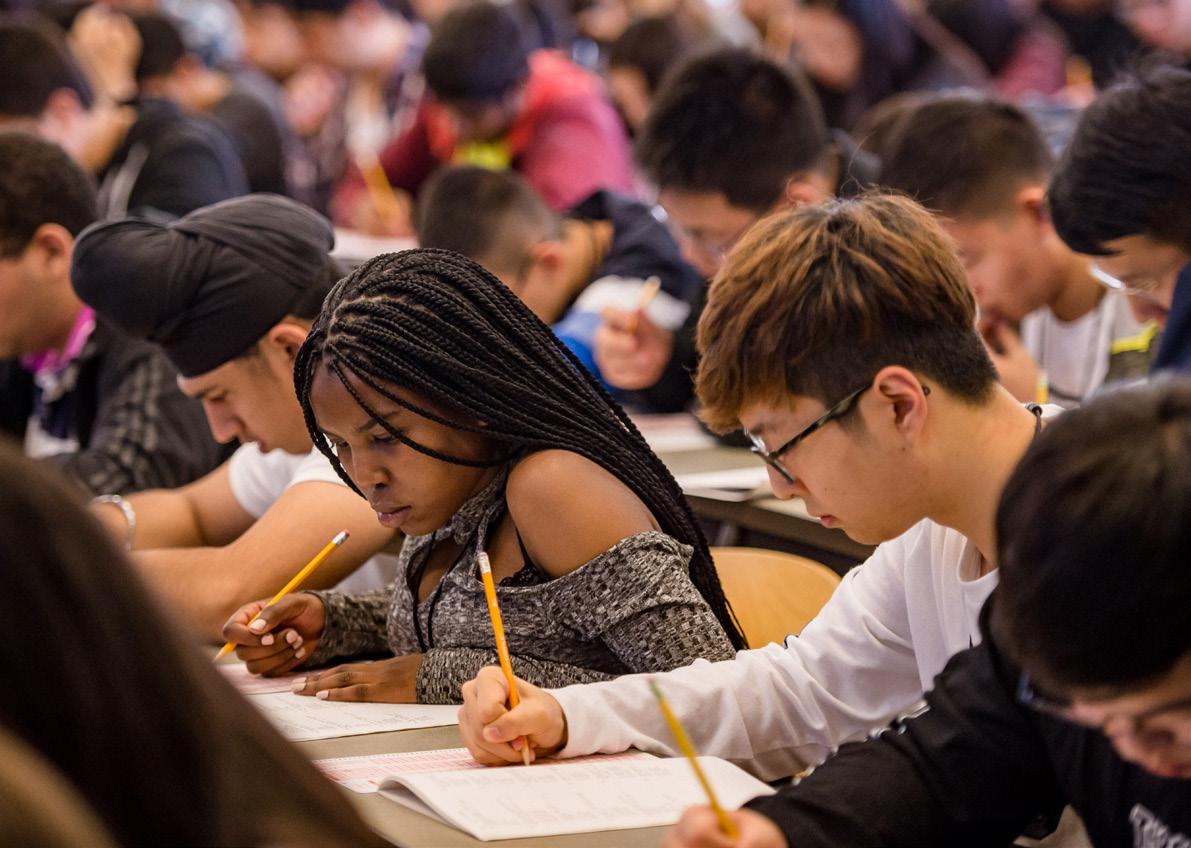
MCPHS is fully committed to coaching international students to achieve rewarding healthcare careers within a close-knit, welcoming community with mentors and staff who have experience working with international students and who understand their needs. MCPHS brings international students into the world of American healthcare through a supportive and successful method. Close to 1,000 international students make up over 15 percent of the student body, creating a dynamic, enriching, and diverse community.
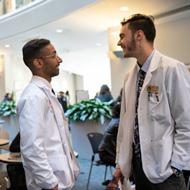
Take a look at our International Viewbook to learn more about what the international
international student experience is like at MCPHS.
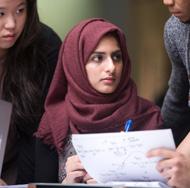

#1 college for value in the U.S.
#9 special focus institution for hosting international students
–2020 Open Doors Report

»Find the right fit for you, explore our programs
»Ready to take the next step? International Applicants | MCPHS

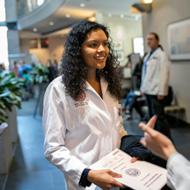
Take a look at our International Viewbook to learn more about what the international
Transition Programs for International Students
We offer four programs designed to help international students transition into life at MCPHS.

International Transition Programs | MCPHS
International Student Life
The MCPHS International Center is the doorway for international students to become active members of the MCPHS community, so they can make the most of their experience here. We connect international students to university resources, create programs to enhance student learning and development, and serve as advocates for international students across campus.
International Student Experiences | MCPHS
International Admission Counselors
Our counselors are ready to help you.
International Counselors | MCPHS
We offer up to $18,000 per year in renewable merit-based scholarships.

international student experience is like at MCPHS.
»Find the right fit for you, explore our programs

»Ready to take the next step? International Applicants | MCPHS


Mastering Data Science a university student’s journey Majoring In AI: A Bachelor Student’s Thoughts
Samarth Bhatia is a bachelor student studying at the University of Groningen in the Netherlands.
We spoke to Samarth for his insights into majoring in Artificial Intelligence.
What made you want to study AI?
I’ve always been fascinated by consumer technology and its potential to shape the future.
The rapid advancements in AI and its applications across various industries convinced me that studying AI could provide me with a well-rounded education that equips me to understand both technical and business aspects of AI implementation.

Are you happy with your decision to study AI?
Absolutely, I am thrilled with my decision to study AI. The interdisciplinary nature
of my course, combining a major of AI with a minor in International Business, has provided me with a wellrounded education.
I feel that it equips me to understand both the technical and business aspects of AI implementation.
What has been the biggest challenge?
One of the biggest challenges has been managing the workload and staying personally up-to-date with the fast-paced developments in AI.
Balancing assignments, projects, and keeping up with the latest research requires strong time management and dedication.
What has been the biggest plus?
The biggest plus has been witnessing the tangible impact of AI in various industries and understanding
how it can transform businesses and societies.
This reinforces my belief in the potential of AI and keeps me motivated to continue learning and unlearning.
Where do you see the future of AI in education?
In education, AI has the potential to revolutionize personalized learning by adapting content to individual student needs. They can self-access, learn a new language, or even get assistance in everyday tasks such as making schedules, finding exam timetables, setting trip itineraries, etc. Additionally, it can assist teachers in automating administrative tasks, allowing them to focus on teaching.
In general, AI will continue to permeate various industries, enhancing efficiency, decision making, and innovation.
16
Science and AI: journey
Are there things about AI that worry you?
I do have concerns about the ethical and social implications of AI, such as bias in algorithms, retribution gap, and data privacy.
It’s crucial for AI developers and policymakers to address these ethical issues responsibly.
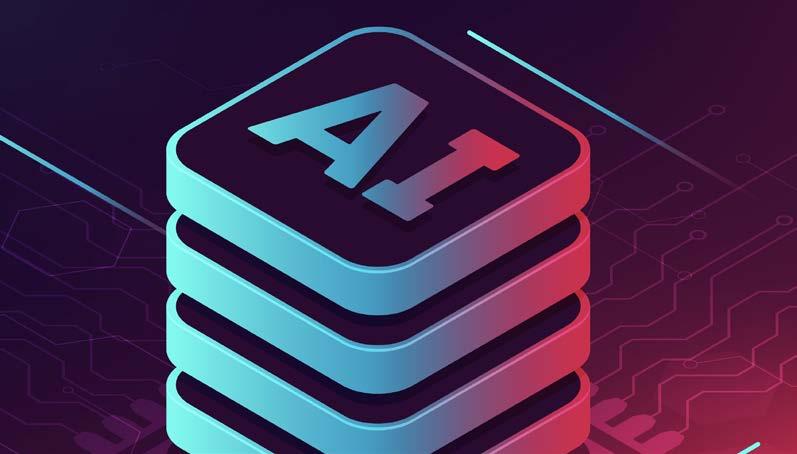
Will AI will replace jobs performed by humans?
While AI has the potential to automate certain tasks, I believe its true power lies in augmenting human capabilities rather than outright replacing jobs. It can lead to the creation of new roles and industries as the Industrial Revolution did, while enhancing the productivity and creativity of human workers.
An interesting question is around the ethics in situations where AI is doing
the job. For example, if a self- driving car using AI gets into an accident, whose fault is it? Is it the driver’s fault, the engineer’s, or the car company’s?
What is something about AI that you did not fully appreciate before?
Before studying AI, I did not fully grasp the complexity and diversity of AI applications.
It is not just about creating human-like robots; AI is integrated into everyday technologies, from a simple YouTube algorithm’s recommendation system to complex medical diagnostics.
Where do you see yourself after university?
After university, I envision myself working at the intersection of AI and International Business, possibly in roles such as AI strategy consultant, AI
product manager, or even as an entrepreneur.
I want to leverage AI to drive innovation and create positive change in various industries on a global scale. Some newer jobs such as AI ethicists or AI digital transformation managers will definitely be created in the future, and I would envision myself landing these roles.
What’s your advice for students interested in pursuing this major ?
My advice would be to foster a strong foundation in programming. It is also crucial to stay curious and constantly seek opportunities to learn, whether through online courses, internships, or personal projects. Additionally, developing communication and collaboration skills will be beneficial, as AI often involves working in interdisciplinary teams.”

17
Bachelor
Building Knowledge for a Better World
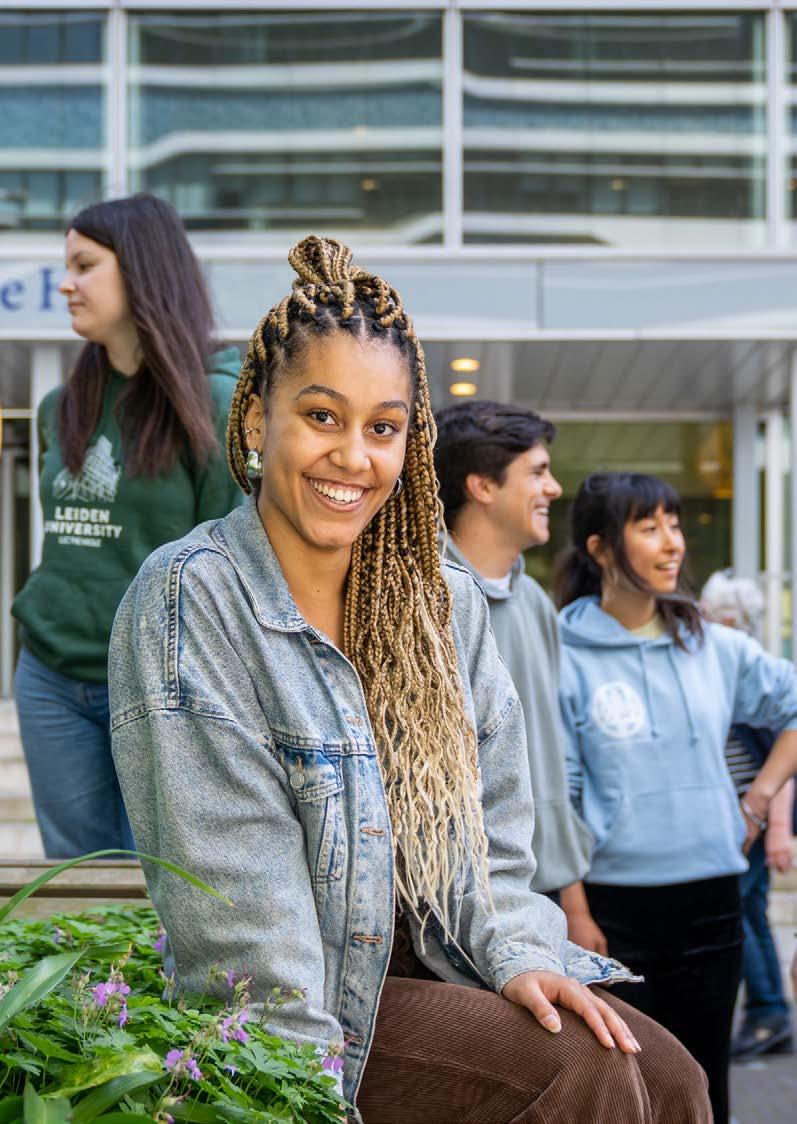
How has this dramatic increase in human population impacted Earth’s life support systems and natural resources? How should we understand the meaning of sustainability? How do we achieve a sustainable society where every human and animal can prosper? How do environmental issues disproportionately impact communities with high poverty? How does a focus on climate justice help effectively address environmental problems? These are very big questions and very complex topics to cover.
The Liberal Arts and Sciences: Global Challenges Bachelor’s programme at Leiden University College in The Hague, The Netherlands operates at the forefront of the field where these complex societal issues from the 21st century are tackled. The international honours college of Leiden University aims to build knowledge for a better world, through a community that is focused on societal impact.
LUC focusses on the Global Challenges of the 21st century: Sustainability, Diversity, Prosperity and, Peace and Justice. Global Challenges are unavoidable issues facing humanity and the planet. They cannot be solved by one nation, institution or organisation alone. In this interdisciplinary 3year bachelor’s programme you learn to analyze, understand and respond to these issues with a balance between understanding key concepts within a classroom setting, and applying the gained knowledge and skills in real-life situations.
About Leiden University College The Hague

1 Residential college in The Hague, The Netherlands
4 Global Challenges
6 interdisciplinary Majors
600 students at LUC in total

50 different nationalities
10 times winner top-rated programme
19
At the start of the 20th century there were fewer than 2 billion people. Now at over 7 billion, Earth’s population is on target to reach 8 billion by 2027.
Get to know us on lucthehague.nl
Pick your major
Are you interested in the environment, climate change, and alternative energy strategies? Go for the Earth, Energy and Sustainability Major. Rather focus international justice, world politics, cultural diversity, socio-economic integration, health, decision-making processes or human security? LUC has a major that suits you!




Within the flexible and inter-disciplinary curriculum it offers six Majors, three of them leading to a Bachelor of Science and three to a Bachelor of Arts:
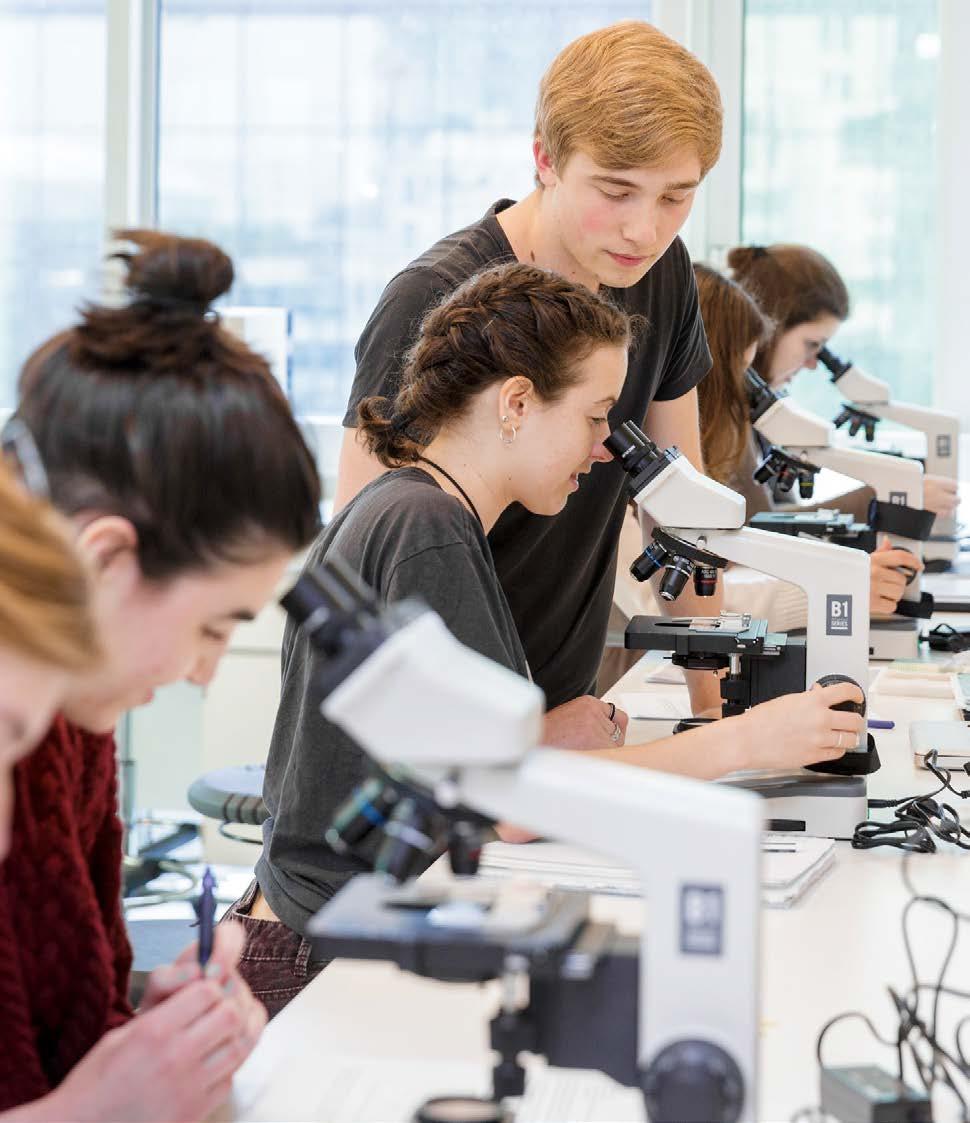
LUC Majors
After completing the 1st year of the programme, you will continue your studies in your selected Major where you design your own programme by choosing courses in specific tracks within your Major, and adding to them with electives. In this way you create your own path to match your personal interests and ambitions!


20
BSc. Earth, Energy and Sustainability
BSc. Governance, Economics and Development
BSc. Global Public Health
BA Culture, History and Society BA International Justice BA World Politics


Are you interested and want more information? Join LUC The Hague on: Contact us
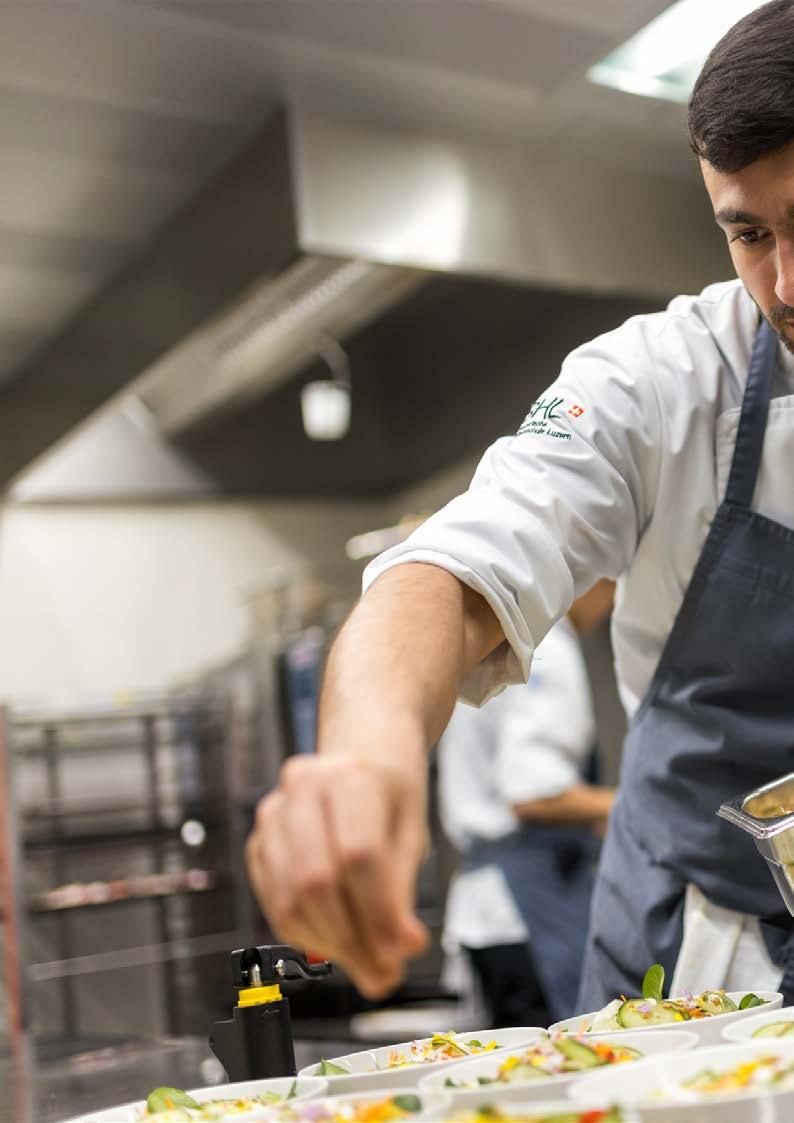
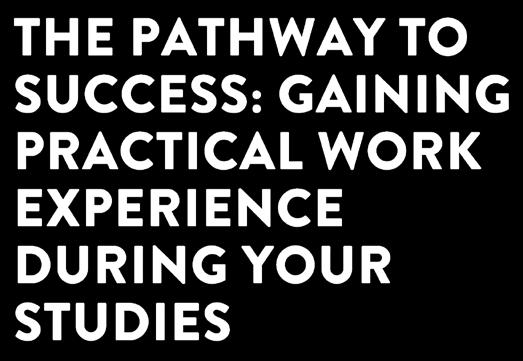
In the pursuit of higher education, students often find themselves at a crossroads, torn between the desire for theoretical knowledge and the practical skills that future employers demand Why choose when you can do both? SHL Schweizerische Hotelfachschule Luzern - one of the two original hotel management schools in Switzerland - has successfully integrated hands-on experiences and practical internships into their curriculum since its beginnings in 1909 It offers its students a fantastic opportunity to bridge the gap between academic skills and practical exposure - and thus greater employability after graduation.
Let’s explore the importance of gaining practical work experience during your studies, focusing on the practice-oriented approach taken by SHL in Switzerland.

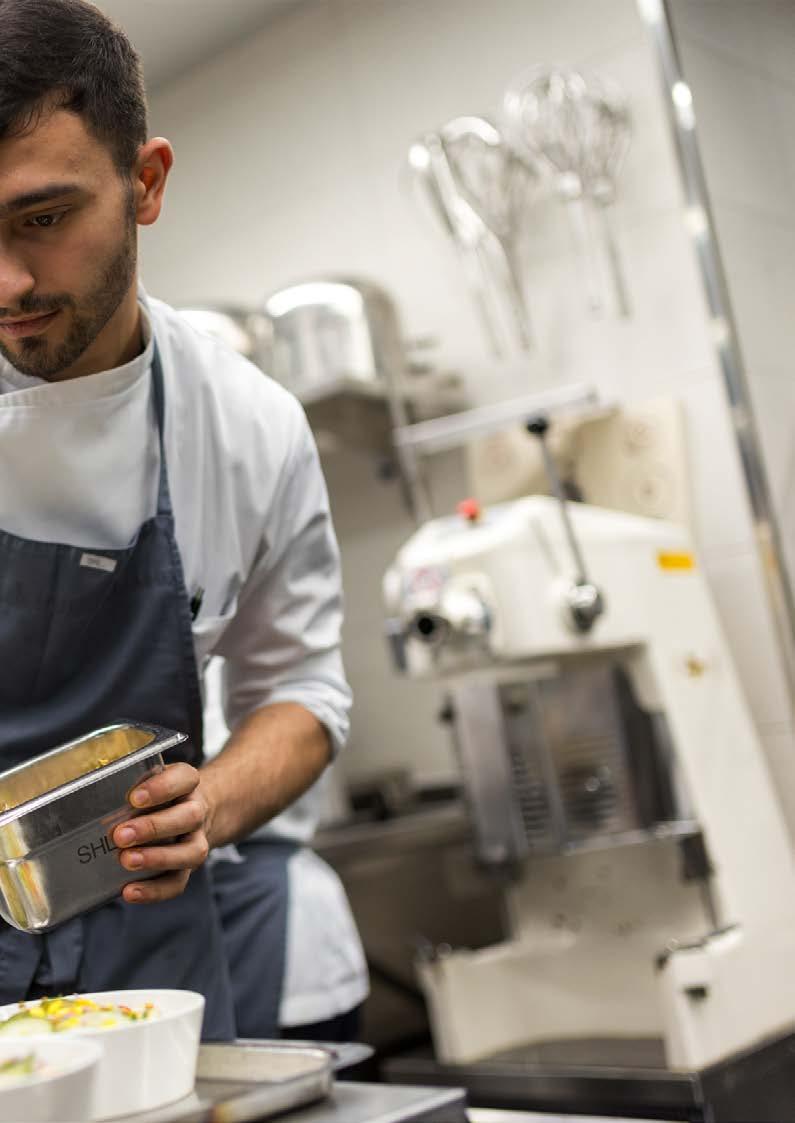

Learning by Doing: SHL's Practical Approach
At SHL, students are not just confined to classrooms and textbooks They are actively engaged in gaining practical experience right from day one. The institution boasts an educational restaurant on campus which serves as a training ground where students can hone their culinary and service excellence skills
Moreover, SHL's management classes are designed with an applicationoriented approach Students delve into case studies and simulations that mirror real industry scenarios, empowering them to apply their theoretical knowledge to practical challenges This unique blend of academic rigour and hands-on experience ensures that SHL graduates are well-prepared to excel in the practical internships that follow the school semesters - and in the ever-changing world of hospitality
From Campus to the World: The Freedom to Choose


SHL students benefit from the free choice of company and destination for their internships This flexibility empowers students to explore the world during their studies, enabling them to immerse themselves in diverse cultures, gain insights into varied hospitality practices, and get to know different businesses These experiences not only enrich their education but also provide valuable insights into potential career paths, helping them make informed decisions about their future work preferences. Whether it's working at a luxury resort in the Swiss Alps or experiencing the vibrant hospitality scene in Asia, SHL students have the opportunity to customise their internships to align with their career goals and personal interests
Also, the practical internships help students put their learning into action,
24
«PRACTICAL INTERNSHIPS GIVE YOU THE CHANCE TO LEARN ABOUT OTHER CULTURES, CHALLENGE YOURSELF AND BUILD A GLOBAL NETWORK.»
Lukas, SHL Student
SHL students Lukas (picture on the left) and Fabiana expanding their networks and making new friends during their practical internships
Fabiana, SHL Student
allowing them to see the connections between the different subjects they've studied It's not just about mastering individual skills; it's about understanding how these skills integrate to create exceptional guest experiences and successful businesses

And a clear plus of the paid internships: students not only gain valuable insights into working life, they also earn their own money
Comprehensive Support for Student Internships


While SHL students relish the freedom to select their internships, the institution offers proactive assistance in securing the ideal placement SHL has fostered an extensive global network of industry partners, affording students access to a wide-ranging array of internship opportunities in Switzerland and abroad These partners actively promote their openings on SHL's online job market and periodically visit the SHL campus, engaging with students during career days
Moreover, personal coaching is available to accompany and support students in their career decisions This comprehensive system ensures that students have the resources and guidance they need to make the most of their practical internships and launch their careers successfully
Focus on Practice - the Bridge to Future Success
Studies have consistently shown that students who gain work experience during their studies are more employable after graduation and obtain higher starting salaries
According to the LinkedIn Opportunity Index, an overwhelming 82% of hiring managers and an impressive 91% of talent professionals consider internships to be a pivotal factor when evaluating a candidate's employability Employers view internship experiences as a reliable indicator of a candidate's readiness for the workforce
In conclusion, the importance of gaining practical work experience during your studies cannot be overstated, especially in fields like hospitality management SHL's emphasis on practice equips students with the skills, confidence, and industry-specific knowledge that employers value, as well as the tools they need to succeed in their future careers With the commitment to real-world learning, SHL Schweizerische Hotelfachschule Luzern empowers its students to thrive in a competitive global industry
SHL Schweizerische Hotelfachschule
Luzern is one of the two original Swiss hotel management schools in Switzerland and offers a Bachelor of Science in Hospitality Management which is accredited by the Swiss federal government and recognised worldwide as well as the Swiss Diploma «Dipl Hotelier(e)Gastronom(in) HF»
25
«THE INTERNSHIPS GIVE ME THE OPPORTUNITY TO GET A TASTE OF DIFFERENT COMPANIES, WHICH HELPS ME DECIDE WHERE I WANT TO WORK IN THE FUTURE.»
>
Join SHL student Olivia on her practical internship at the luxurious Bürgenstock Hotels & Resorts, Switzerland
AI - A Catalyst For Chemical Engineering
From designing blueprints for expansive chemical factories to harnessing the power of molecules, Artificial Intelligence (AI) is helping chemistry research evolve at an unprecedented pace.
We spoke to Sam Andersson who recently explored the intersection of AI and Chemical Engineering in his master’s project for Chemical Engineering at Imperial College London.
Q: What’s Chemistry v.s. Chemical Engineering?
A chemist primarily focuses on studying the composition, properties, and reactions of substances at a molecular level to expand scientific knowledge.
In contrast, a chemical engineer applies principles of chemistry and engineering to design and optimize processes for large-scale production, ensuring efficiency, profitability, and safety. Basically, a chemist figures
out how to make a chemical in the lab, and a chemical engineer figures out how to make it at scale, reliably and economically.
Q: How much chemistry is in chemical engineering? Surprisingly, not as much as you might think. Chemical engineering is like a fusion of physics, optimization, and problem-solving. It involves surprisingly little chemistry, given that the word chemistry is in the name!
Q: How did you come to do this research project?
As part of the integrated master’s degree, students must complete a final-year research project. We teamed up to research how AI could be used to streamline the
intricate process of flow sheet synthesis, a central task in chemical engineering.
Q: How can AI be of use in chemical engineering?
I just want to be perfectly clear here that I'm not an AI researcher and I'm not yet a chemical engineer. I have a master’s in chemical engineering, but you need experience to say you are a chemical engineer. However, to answer your question, chemistry could be described as a graph; a molecule can be seen as a network. AI can make predictions regarding graphs and networks. It is a great way of predicting the complex properties of a molecule network.

26
Cartoon by Avish Vijayaraghavan - PhD Candidate in AI for Healthcare


Q: So where do you see it really helping in the future?
AI is already helping us to discover molecules faster. We may be able to skip a lot of the research and development. The difficulty is starting from scratch.

This is where AI is promising. Imagine being able to start with an informal request such as, “I want to make chemical X. I have access to these chemicals at these prices, so make me an initial conceptual design and give me many different ideas.”
Once you have something, then we already have very rigorous techniques to optimize things.
Q: How did you start your AI project?
At Imperial College, we have 3 months to pursue a research project. You are supposed to choose from set projects, but a friend and I wanted to do our own. We built an interdisciplinary proposal. Initially, we were discouraged from doing a project such as this, but we were quite committed to it.
Fortunately, there was a professor in the AI group in Chemical Engineering who knew us from previous work done with him. We spoke to him. We said, “Hey, if we specify all of our options as your projects then, if we get you, can we just do our own thing?” Luckily, he said yes. We were very grateful for that.
Q; How did you find working in independent research?
It was quite an adventure. We became completely obsessed about it for those three months. We called it the “mind virus” because we could not think of anything else during that time.
We contacted a bunch of researchers in the field, and we went over to Cambridge to talk to people. That was quite exciting. We knew a bit about machine learning by then, but we learned a lot more by completing the project. Learning how to implement complicated maths involves a lot of failures, headscratching, and searching for answers. But I'm happy about that because then we actually learned how to learn stuff. That was one of the great things about that project.
Q: What initially sparked your interest in doing a deep dive into AI?
When I was in high school, and I came across a YouTube video channel called 3Blue1Brown by Grant Sanderson.
These videos explain what a neural network is and give a beautiful visual explanation. I encourage high school students to watch this themselves.
However, it is important to watch his linear algebra series first though. But I would caution them that you can leave that being
people now takes 10, and that group of 10 people can be very agile.
Q: Final Thoughts?
The real value of these tools is knowing where to use them and when to use them. A lot of these techniques have been around for ages, and they’re being repackaged. Deep learning is sort of a subset of those techniques that has advanced significantly. If you are interested in AI, then learn by doing a project that you're interested in. Then you're going to be much more willing to learn
naively convinced that you know everything. You won’t, but naivete is very useful to make you go further. It’s very exciting and gives you enough energy to keep moving forward in your learning.

Q: What are your excitements and concerns for our future with AI?
I think that the future is in our hands, and it is bimodal. What we do has great potential in both directions. I am very excited, but I am concerned about the use of AI in mass weapons.
I’m also afraid of large language models being used for controlling sentiment on political policies and even simpler models controlling public sentiment on ideas.

On the other hand, it brings extreme power to the individual. What used to take 100
those things. I think that this is what high schoolers need to do.
Start with “why” and then that leads into the “how” and the “what”. In many classrooms right now we'll have students learning calculus or precalculus and they're like “why am I doing this and when am I ever going to use this?”
If you start by seeing something cool and want to learn how to do that cool thing, then you are going to move through your learning quickly and thoroughly. You will have a reason to learn. Right now, you can learn almost anything with ChatGPT. Suddenly the barriers to learning are way lower because you have a personal tutor. It’s exciting.
Here is Sam’s full project on AI for Chemical Process Development.
29
Right now, you can learn almost anything with Chat GPT. Suddenly the barriers to learning are way lower because you have a personal tutor. It’s exciting.
Sam’s Advice On How To Get Started in AI
What you need to really start learning AI is a strong foundation in linear algebra and maybe some vector calculus. If you can learn some statistics, then you have more than enough to get started. After that, it’s about learning to code in Python and there are loads of resources for doing this. Basically, you have to get to the point where you can start to understand and implement research papers.
Watch Grant Sanderson’s 3Blue1Brown videos.
Watch Linear Algebra and then Neural Networks. It’s important to watch his linear algebra series before doing anything. DO NOT SKIP IT. These will give you an informative yet entertaining explanation of a neural network, or in other words, AI.
Get GPT-4 and Visual Studio Code.
Then ask Chat CPT4 to help you install Visual Studio Code (VS Code). This is a source-code editor where you do coding, and VS code is the most popular code editor for a variety of programs and languages.
Get GPT-4 to create you a course to learn python.
Ask Chat GPT4, to create a course for you. You can ask it to create a syllabus, tell it how long you have to learn, e.g. six months, and to create a daily lesson plan to reach your goal in that time frame.
Work through the course.
Get GPT-4 to ask you questions, and show you the answers. Be sure to clarify anything you don’t understand e.g. ask it to comment on exactly what each step does. You can ask it so explain at different levels e.g. explain it as if I am a beginner.
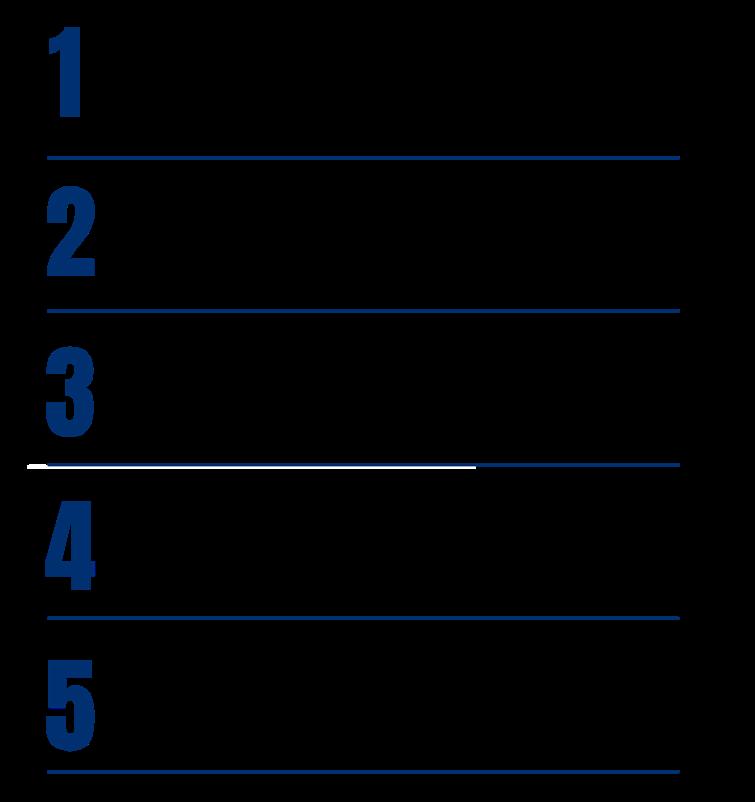
Then you must start doing.
The fastest way to learn is by doing. A course can give you an overview but ultimately you only understand something once you’ve done it yourself. But don’t let that fool you into thinking that you know what you’re doing. There will still be much more to learn.
30



Find yourself, push yourself, be yourself. Bachelor of Science in International Hospitality Management ehl.edu/bachelor
We train the future, the future is yours
Based in Spain, IE University has an urban campus in Madrid and a historic and cultural campus in Segovia. All our programs are taught in English, though students will also have the opportunity to learn Spanish with their peers and through complementary language courses. The student body is made up of over 130 nationalities and 75% of the student body is international. At IE University, students can personalize their programs through electives and advanced seminars that complement their interests to build their own academic journeys. We have strategic exchange partnerships with over 200 universities around the world.
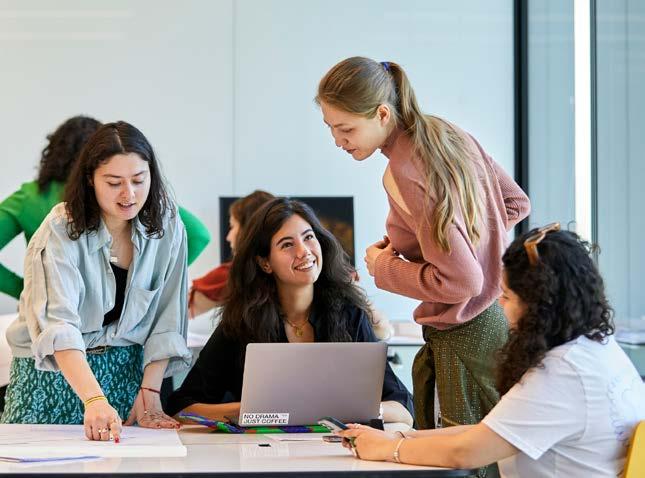
Q5 World University Rankings International 2023
International Students
European
Times Higher Education Rankings 2022
Global Employabiliy Ranking
Global Global
#1 #7
#5 #19
32
IE UNIVERSITY IS AN INTERNATIONAL INSTITUTION WITH A PRACTICE-BASED APPROACH THAT GOES BEYOND THE CLASSROOM WALLS.
European CHECK OUT OUR VIRTUAL CAMPUS TOURS
Diego Rubio Gutierrez Business Administration Student, IE Entrepreneurs Club President

Our Pillars
TECHNOLOGICAL IMMERSION AND A CULTURE OF INNOVATION

At IE University our students are immersed in a technologically innovative environment, preparing them to take a leadership role in the modern world’s new digitally transformed landscape.

ENTREPRENEURIAL MINDSET
IE University breeds entrepreneurship and intrapreneurship, creating an ecosystem that expands far beyond the confines of the campus, where students and graduates can grow and develop their innovative startups.
THE LENS OF THE HUMANITIES
IE University understands the Humanities are key in understanding the reality of our world, applying key critical-thinking skills to complex, global challenges.
A DIVERSE EXPERIENCE
Diversity is at the heart of who we are. Our rich mix of nationalities, ideas and perspectives make up the fabric of IE University. With students, graduates and professors from more than 160 countries, our campus is a truly international hub. DISCOVER MORE
33
At the Entrepreneurship Club, we strive to be the main gateway for students to achieve their entrepreneurial dreams through our events, connections, and guidance. As a student club, we’ve had nothing but the full support of IE University and complete faith in our vision to succeed.”
Pre College Activities
At IE University we are committed to providing an academically rigorous educational experience, using an innovative and practical methodology.
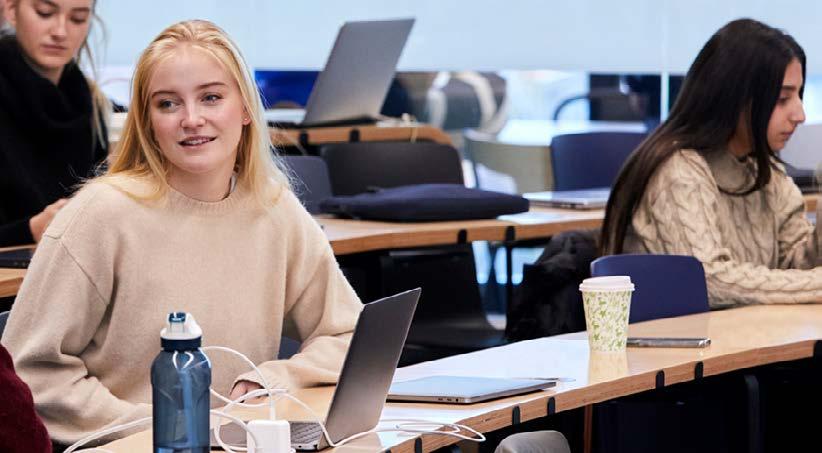

We offer pre-university students the chance to experience practical and experiential learning with programs designed specifically for them.

34
IE University has helped me put my passions into practice. I’ve been able to explore more and find sources to work in these areas.
Emily Swann Dual Degree in Laws and International Relations
DISCOVER MORE
Applied Mathematics
Architectural Studies
Behavior and Social Sciences
Business Administration
Communication and Digital Media
Computer Science and Artificial Intelligence
Data and Business Analytics
Design
Economics
Environmental Sciences for Sustainability
Fashion Design
Humanities
International Relations
Laws
Philosophy, Politics, Law and Economics
Dual Degrees
Business Administration & Computer Science and Artificial Intelligence

Business Administration & Data and Business Analytics

Business Administration & Design
Business Administration & Fashion
Business Administration & Humanities
Business Administration & International Relations
Business Administration & Laws
Economics & Applied Mathematics
Economics & International Relations
Laws & International Relations
Philosophy, Politics, Law and Economics & Data and Business Analytics
35
FIND OUT MORE FIND US ON @ieu_admissions @ieuniversity www.ie.edu/university/podcast
Undergraduate programs
Mastering Data Science a university student’s journey
Data scientists aim to uncover patterns within mountains of data. It's about wielding the power of technology and statistics to transform raw information into actionable insights to drive innovation and informed decision-making in our data-driven world.

Paul Gailey, studying his Master’s of Data Science at King’s College London, shares his journey into the world of AI and sheds light on the dynamic relationship between these two fields.
Data Science and AI: A Symbiotic Relationship
"When it comes to Data Science and AI, it's all about the fundamentals," Paul says. In his master’s program, he delves into the core principles, including big data management, data quality assessment, statistics, and the critical evaluation of AI models.
Data Science, he notes, provides a holistic view of data, with machine learning as a key component.
How social media algorithms led to studying AI
Paul’s journey into the world of AI began with a fascination for data. “I’ve always had this obsession for data,” he admits.
But, Paul’s specific interest in AI had a surprising origin – social media. “I installed TikTok and I was immediately hooked.” After a couple of months of spending too much time on TikTok, he realized that most likely, this was harmful to himself, so he deleted it.
It was his realization of the machine learning algorithms behind his social media addiction that prompted him to explore AI’s potential for responsible use. “My interest in AI comes from my belief that it can be used in a safe and trusted manner.”
Eventually, he realized that Data Science was his calling.
Math Matters: The Foundation of AI Studies
Paul loves math, which is good, because mathematics is undeniably vital in the world of AI. "You should be quite comfortable with statistics and calculus," he says.
In high school, Paul studied HL IB Mathematics. At university he completed engineering math and physics before starting this master’s degree.
He acknowledges that math is an integral part of the AI field, and it can become complex and
36
Science and AI: journey
non-intuitive, but he tells students not to be discouraged.
AI: should we see it as a threat?
Regarding the ongoing debate about the pros and cons of AI, Paul identifies as an optimist. Paul feels that AI is a tool, not a threat.
“I'm an optimist, so I naturally see all the positives of AI.” In his work in the field of big data, he has harnessed the power of AI to automate many tasks, allowing him to work more efficiently while maintaining the quality of his work.
"AI has the power to automate tasks, analyze large sets of data, and even assist in complex decision-making processes," he notes enthusiastically.

It’s a question of how you want to apply the technology. For me that is in safe and trusted deployment of the models, for others it will be applied to healthcare, transportation, etc. However, he is also cautious about the hasty application of AI without proper evaluation. "AI systems can inadvertently perpetuate biases, make incorrect decisions, or even cause harm," he warns.
He emphasizes the need to ask the right questions before implementing AI solutions.
"AI can't be critical of itself, and I don't think it ever will be," he asserts. He recommends reading The AI Delusion by Gary Smith for those concerned about AI's impact on job prospects.
Paul’s message is clear: AI is a powerful tool that, when wielded responsibly, can transform industries and make the world a better place.
AI in Action: Working at a new, innovative Startup
Paul's exploration of AI doesn't stop at his studies. He has joined a startup that focuses on utilizing AI models, such as Large Language Models, to enable users to interact with their utility bills in multiple languages. Additionally, the startup aims to help users optimize their energy usage by suggesting the most cost-effective times to run appliances, or automatically switching to renewable energy sources when available. "We are trying to build a user-friendly interface for both consumers and utility companies," Paul states.
Paul’s journey from a student who loved math in high school to harnessing AI in optimize utilities, highlights the varied opportunities in a career involving AI.

37
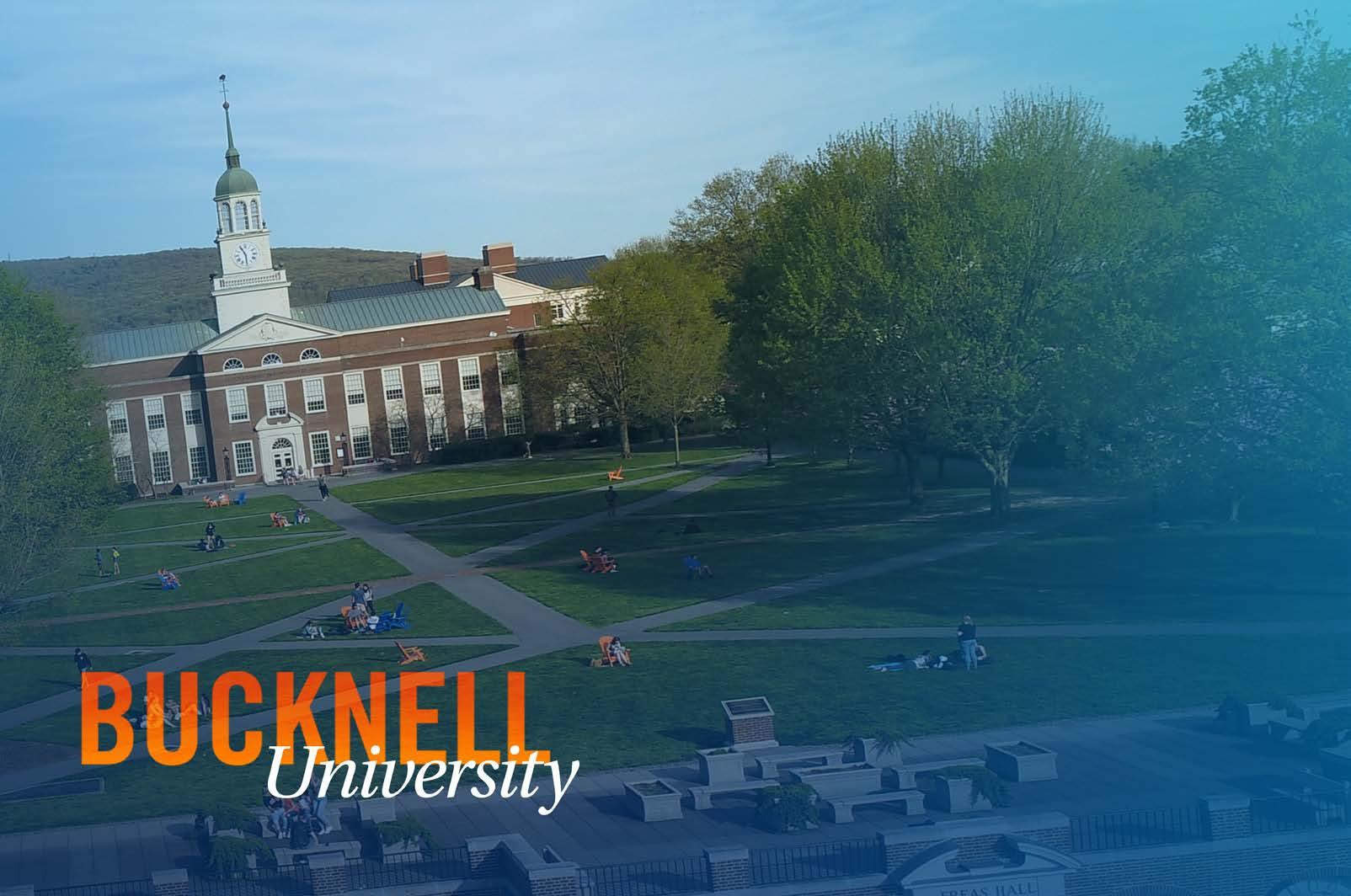
38 BUCKNELL.EDU/INTERNATIONALADMISSIONS // BUCKNELL UNIVERSITY, ONE DENT DRIVE, LEWISBURG, PA 17837, USA
Bring your natural curiosity to Bucknell University in Pennsylvania, where you’ll meet world-class faculty and study in leading-edge lab spaces.
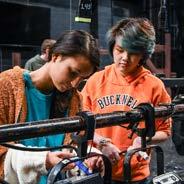

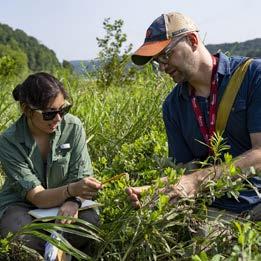

Here, you can develop a way to filter harmful carbon out of the air, slowing the spread of global warming. Or design a computer program that eliminates a chronic disease. Or invent a cheaper way to bring clean water to communities in need.

39
From here, anything is possible.
WHO WE ARE
• Bucknell is an innovative University based in the liberal arts. We have three colleges: the College of Arts & Sciences, the College of Engineering and the Freeman College of Management

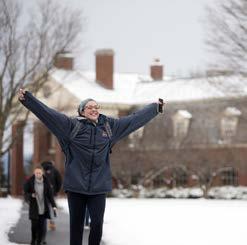
• With 65 majors and more than 70 minors, we help you explore many different interests, meaning you’ll graduate with an array of in-demand skills.
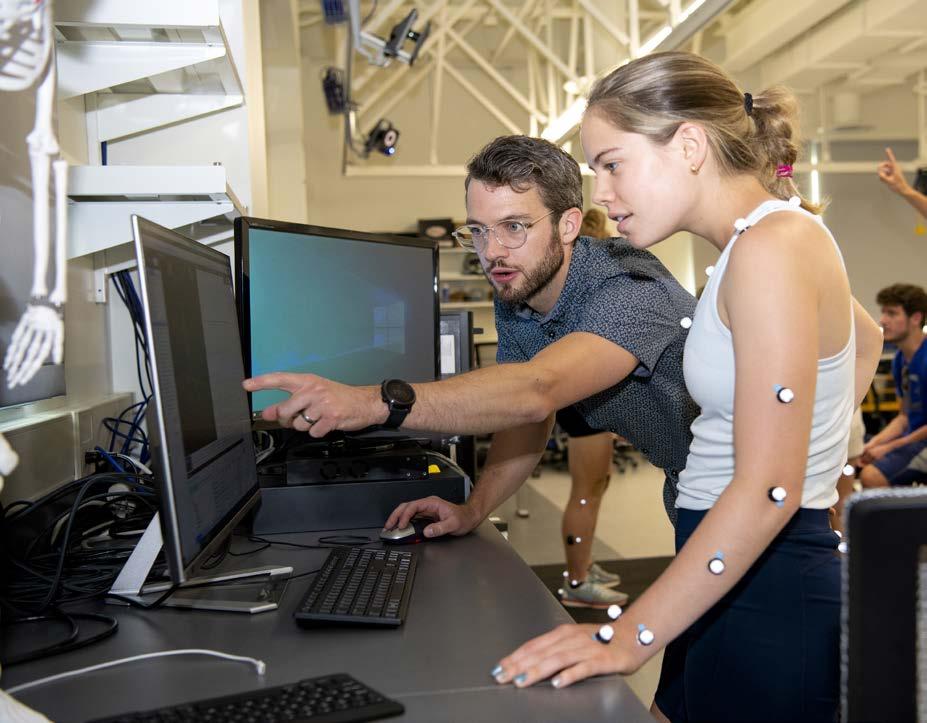
• We have a 9-to-1 student-faculty ratio and average class size of 20 That means our professors will know you and support you in every aspect of your education.
• With more than 200 student clubs, you’ll discover something amazing every day of the week and make lifelong friends.
• Bucknell’s housing and dining options are designed to make you feel at home.
GO BEYOND THE CLASSROOM AND EXPERIENCE THE REAL WORLD
At Bucknell, we support our students as they explore their intellectual curiosity, and we empower them to become innovators in whatever field they choose.
It starts in the classroom, where our world-class professors personally guide discovery in small groups. But it doesn’t end there.
We are a living-learning community where students explore the ideas and theories they’re passionate about. This happens in laboratories, residence hall lounges, the local community and study-abroad programs around the world.
It’s why our students graduate ready to make a difference and shape the world they live in.
40 BUCKNELL.EDU/INTERNATIONALADMISSIONS // BUCKNELL UNIVERSITY, ONE DENT DRIVE, LEWISBURG, PA 17837, USA
Learn more at go.bucknell.edu/InternationalStudents
COLLEGE ADMISSIONS INSIDER PODCAST
Listen to Our Podcast
Get your advice straight from the source: the admissions counselors who actually read student applications. In each 30-minute episode of College Admissions Insider, our biweekly podcast, students and families get timely, relevant advice. Listen at go.bucknell.edu/AdmissionsPodcast or wherever you get your podcasts.
ADMISSIONS BLOG


Read Our Blog

On our blog, we answer the questions students ask most. Will applying undecided hurt my chances? Should I use the Common App or the Coalition App? What makes an essay stand out? Visit go.bucknell.edu/AdmissionsBlog for these answers and many more.

SUPPORT FOR YOUR COLLEGE SEARCH
Experience Everything. Miss Nothing.

Northeastern University is a top-ranked research university recognized as a global leader in experience-powered education. For more than 100 years, Northeastern has pioneered a learning model rooted in engagement with the world.
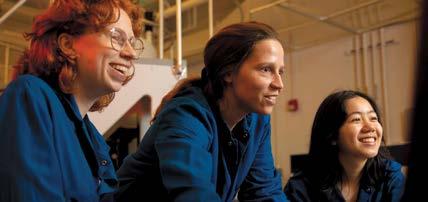


#1 for Co-ops and Internships (U.S. News & World Report, 2023)
97%
of 2022 graduates are working full time or enrolled in graduate school within nine months of graduation
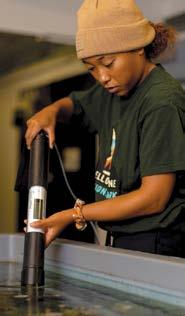
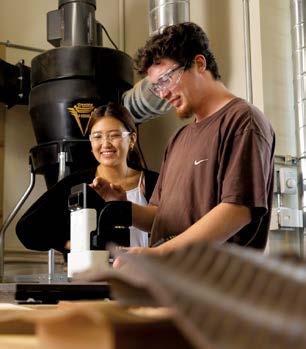
You’re empowered to pair rigorous academics with immersive learning experiences relevant to your academic path.

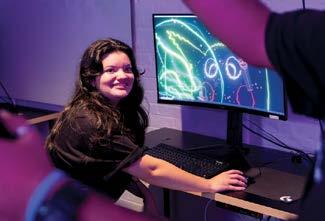


The university’s strong network of campuses, partnerships, and alumni creates plenty of opportunities for you to pursue your passions and impact the world.


Academics
Are ONLY THE BEGINNING
Northeastern blends rigorous academics and innovation at its academic colleges, which operate across our undergraduate campus network. The knowledge and experiences you’ll gain by applying your classroom learning to the real world will arm you with the skills you need to thrive at Northeastern and beyond.
Our colleges include:

› Bouvé College of Health Sciences

› College of Arts, Media and Design
› College of Engineering
› College of Science
› College of Social Sciences and Humanities
Explore Your Options
Not ready to declare a major? The Explore Program and Discover Oakland program for undeclared students gives you more time to consider all the academic, co-op, and career opportunities throughout the Northeastern network before choosing a major.
Unique resources for undeclared students include:
› D’Amore-McKim School of Business
› Khoury College of Computer Sciences
› Mills College at Northeastern University
Flexible Options. ENDLESS POSSIBILITIES. Find Your Path
NUpath aims to give students the knowledge and skills to be lifelong learners and grow as global citizens to prepare you for personal success regardless of your chosen field of study. And, it offers you the flexibility to personalize your course schedule.
Explore northeastern.edu/core to see how far you can go.
› Dedicated advisors help you choose a major and navigate Northeastern.
› Peer mentors across our various majors and colleges.
› Networking events featuring faculty, students, advisors, and alumni.
› A first-year seminar course that connects fellow undeclared students.
Accelerate Your Future
Want to get a head start on earning your graduate degree? Pursue a PlusOne program, which allows you to complete a bachelor’s and master’s degree in five years—all while still enjoying the benefits of Northeastern’s experiential learning opportunities.
Visit plusone.northeastern.edu to put your future in motion.
CONNECT WITH US
Want to know more about Northeastern? Join our mailing list for the latest updates on campus visit opportunities, special events, and virtual programming for students that want to run with the pack.
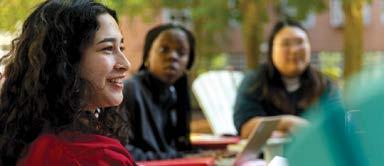
Get in Touch
Stay in Touch

› Visit campus. Register for an information session and a tour of one of our undergraduate campuses for a firsthand look at life as a Husky.
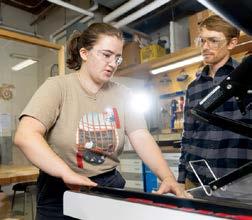
› Check out events. Join our mailing list to receive updates on special events held on our campuses and in cities and towns across the globe.
› Plug into Northeastern. Sign up for interactive virtual events hosted by university representatives and get your questions answered.
Learn More

45
Algorithms - Can They Change Your Mind?
By Matthew Yu, Grade 12, Skyline High School, Seattle
Recent research shows how social media algorithms tend to show a very limited viewpoint to the user. This function of algorithms takes advantage of how we think and has the power to change our beliefs.
The Polarization Puzzle
Polarization, the division between two groups or beliefs, has always been part of human society.
Social psychology studies such as Henri Tajfel’s social identity theory and historical records reveal how humans favor people in their community while being biased against outsiders. Democrat and Republican, Protestant and Catholic, Upper class and Lower class, polarization between social groups has persisted throughout history, reflecting our innate social tendencies.
Concerns are now being raised about how AI affects people’s beliefs compounded by the addictive nature of social media.
AI's Role in Amplifying Polarization
While polarization isn't a new phenomenon, Artificial Intelligence (AI) algorithms have significantly amplified
its effects, especially on platforms like YouTube.
These algorithms are designed to keep us engaged. They do so by tapping into our fundamental human psychology by tailoring user recommendations that reinforce existing preferences.
The YouTube Algorithm
YouTube's recommendation algorithm is a prime example of AI in action. Investigations by organizations such as the Wall Street Journal, and numerous other studies, reveal how this algorithm recommends content aligning with past viewing habits, shaping the viewer’s experience. However, its true power lies in how it capitalizes on human tendencies.
The Quest for Community
Humans naturally seek out conformity with likeminded individuals. This is most famously shown by Solomon Asch’s Conformity Experiments, in which participants chose going with the group over the objectively correct answer.
YouTube's algorithm leverages this innate desire for community by continually recommending content that
aligns with a user's existing beliefs. In doing so, it steers users deeper into their preferred ‘rabbit holes’ and fosters a sense of belonging within specific ideological communities. This relentless conformity pushes us further away from opposing perspectives.
Although the social media recommendation algorithms aren’t inherently malevolent, they have significant consequences.
The Path Forward
In essence, AI algorithms are the engines behind the polarization machine. They understand our psychology, and use our psychological tendencies against us, leading us further into our own echo chambers.
While AI may not be solely responsible for polarization, understanding and recognizing the role of AI algorithms and their impact on our beliefs will allow for more responsible use of technology.
In today’s digital landscape, AI recommendation algorithms are far-reaching. We must recognize the impactful role they play and the power they have in contributing to polarization.
46


UCHICAGO:





COMPUTER SCIENCE AND MACHINE LEARNING AT



UChicago’s Computer Science (CS) program empowers students to explore the cutting edge of operating systems, information theory, algorithm analysis, combinatorics, and artificial intelligence. Furthermore, a computer science major or minor serves as an excellent foundation for work in other areas, including but not limited to mathematics, the natural sciences, social sciences, public administration, and the arts.

The Undergraduate Computer Science Program
Offering BA and BS degrees, UChicago CS prepares students for both graduate work and employment in computer science. Students receiving the B.A. will have sufficient breadth and depth for either graduate study or immediate employment in computer science. Recipients of the B.S. will also have substantial depth and breadth in a field outside of computer science. All students who major in computer science have the option to complete a specialization. Typical specialization areas include systems, security, theory, data science, programming languages, and machine learning.
Additionally, UChicago CS administers paid Summer Research Fellowship opportunities

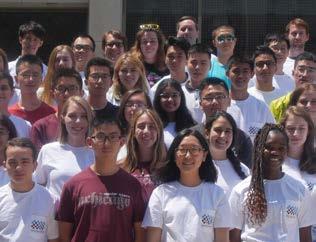


The interdisciplinary research areas include data science, quantum computing, AI & machine learning, human computer interaction, security & privacy, and visual computing.
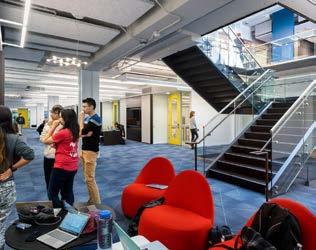
COLLEGEADMISSIONS.UCHICAGO.EDU
Machine Learning
An interdisciplinary specialization track and research area, UChicago CS studies all levels of machine learning and artificial intelligence, from theoretical foundations to applications in climate, data analysis, graphics, healthcare, networks, security, social sciences, and interdisciplinary scientific discovery. Researchers explore the next generation of learning methods, including machine teaching, human-centered AI, applications in language, and image processing. With colleagues across the UChicago campus, the department also examines the considerable societal impacts and ethical questions of AI and machine learning, to ensure that the potential benefits of these approaches are not outweighed by their risks.
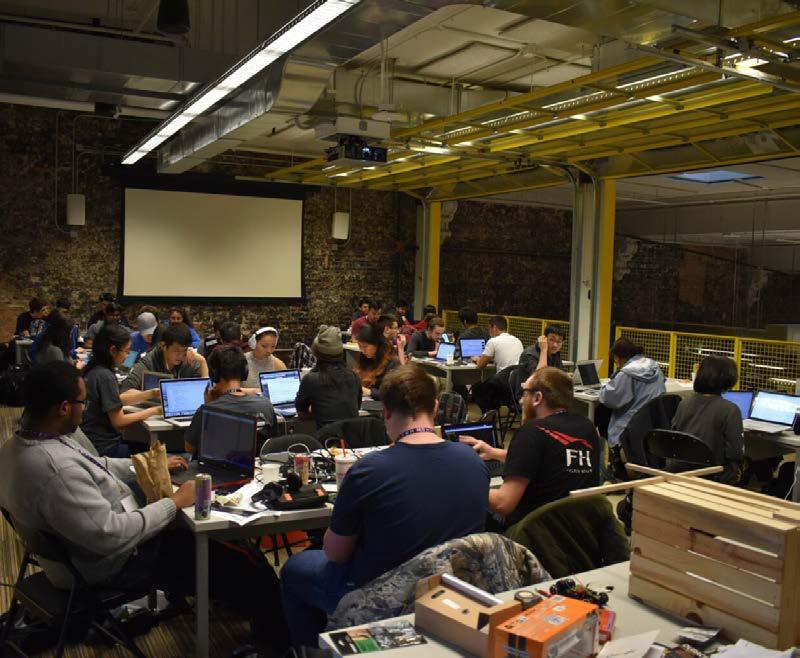

Careers in Computer Science
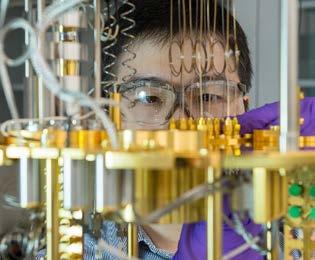
Offered by the Office of Career Advancement, the Careers in Computer Science program prepares students for graduate school opportunities and successful careers in software engineering, data science, technical product management, and related fields. Students benefit from the University’s resources and faculty expertise in artificial intelligence, data science, machine learning, and quantum computing. UChicago’s Computer Science graduates go on to launch impactful careers at top organizations and pursue advanced studies around the world. In recent years, 84% of graduating computer science students went into industry and 16% into graduate school.
Build Your Skills
To help students refine their skills and demonstrate their talents to employers, Careers in Computer Science organizes a variety of experiential learning opportunities, including internships, competitions, recruiting forum speed networking events, and Career Exploration Week immersion experiences for new first-year students.
Meet Employers and Visit Top Tech Markets


In addition to the rapidly growing tech sector in Chicago, Careers in Computer Science offers career “treks” to connect students with employers throughout the U.S. and around the world. These treks bring students to leading tech destinations such as Silicon Valley, Boston, New York, Shenzhen, and Tel Aviv.
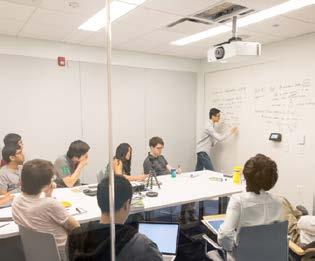

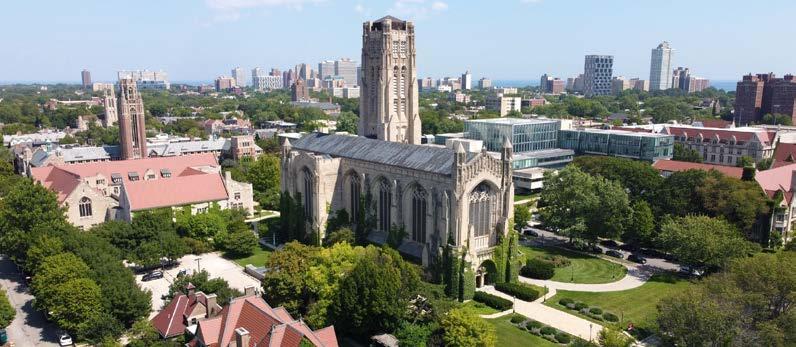

COLLEGEADMISSIONS.UCHICAGO.EDU
COLLEGEADMISSIONS.UCHICAGO.EDU
Using AI To Gain Social Equity
 By Hannah Flitman, Grade 11, Berkeley Preparatory School,
Tampa
Stock picture by Uriel Mont from Pexels
By Hannah Flitman, Grade 11, Berkeley Preparatory School,
Tampa
Stock picture by Uriel Mont from Pexels
Artificial intelligence, or AI, is an exciting field that I’m sure many of you have started to hear about with increasing frequency in the media!
From ChatGPT to artgenerating software to images of robots taking over the world, AI can often seem scary and futuristic without a proper understanding of this complex field.
Obviously, AI has some pretty complicated implications for society that I can’t even begin to unravel or even imagine at the moment, but what I find most interesting is how AI can be used to help with research and advancing scientific data gathering.
For example, this summer, I worked with and trained AI to detect crosswalks in Florida, specifically in Hillsborough County.
I wanted to know the impact of faded pavement markings on accidents in residential areas primarily occupied by White vs Latino populations. I wanted to know if faded crosswalks were more likely to occur in minority neighborhoods in order to inform policy regarding government funding for transportation signage. My research was done at the Resilient Infrastructure and Disaster Response Center (RIDER). This is a shared research institute at Florida Agricultural and Mechanical University and Florida State University.
I worked under the mentorship of graduate
students R. Antwi, S. Takyi, and Dr. M. Koloushani. The head of RIDER is Dr. E Ozguven, who also added supervision to this project.
They had completed research regarding training the AI to detect crosswalks and used it towards conducting research on speeding in school zones. The first step was to use aerial imaging to view all the crosswalks in my study area. You can see how AI might be helpful for this task, as obviously, it would be quite difficult for me to count thousands of crosswalks in Hillsborough!
In addition, how could I measure if a crosswalk was faded and define what this meant?
To use AI, you first need to train it to recognize images by repeatedly feeding it examples of what you want it to identify.
In this vein, we used the YouOnly-Look-Once (YOLOv2) object detection algorithm coupled with Geographic Information System (GIS) techniques to limit the dataset, establish a geocoded connection for each detected crosswalk, and conduct a sensitivity analysis to identify different types of crosswalks and their locations.
The proposed approach can inventory the crosswalks with 85.9% recall and 88.7% precision, utilizing data from all 67 counties in Florida.
RIDER went to great lengths to use accurate and copious amounts of data;

as for this study, data from the most recent images (as of December 2019) were obtained with a total size of 1.2 terabytes.
Utilizing GIS, we could geographically place the crosswalks by importing the images into a mosaic dataset within the GIS software.
Mosaic datasets manage and display multiple geocoded images, allowing the AI to geolocate imaging it detected as crosswalks.
Then, the YOLOv2 object detection algorithm broke down the images we fed into pixels and searched the GIS map for similar images, providing a confidence level each time.
The confidence level ranged from 0-1, with 1 meaning the AI is completely sure that it located a crosswalk, and this confidence level is highly proportional to the fading of the crosswalk.
This data is extremely powerful because it allowed us to gain vast knowledge and insights into Florida crosswalk locations and their effect on pedestrian crashes.
In addition, using the fading level allows for uncovering systemic bias, as I was able to prove that there is an initial correlation between faded crosswalks and Hispanicmajority neighborhoods.
While AI might seem scary initially, it’s important to remember that it can be humanity’s greatest helper when used correctly.
53
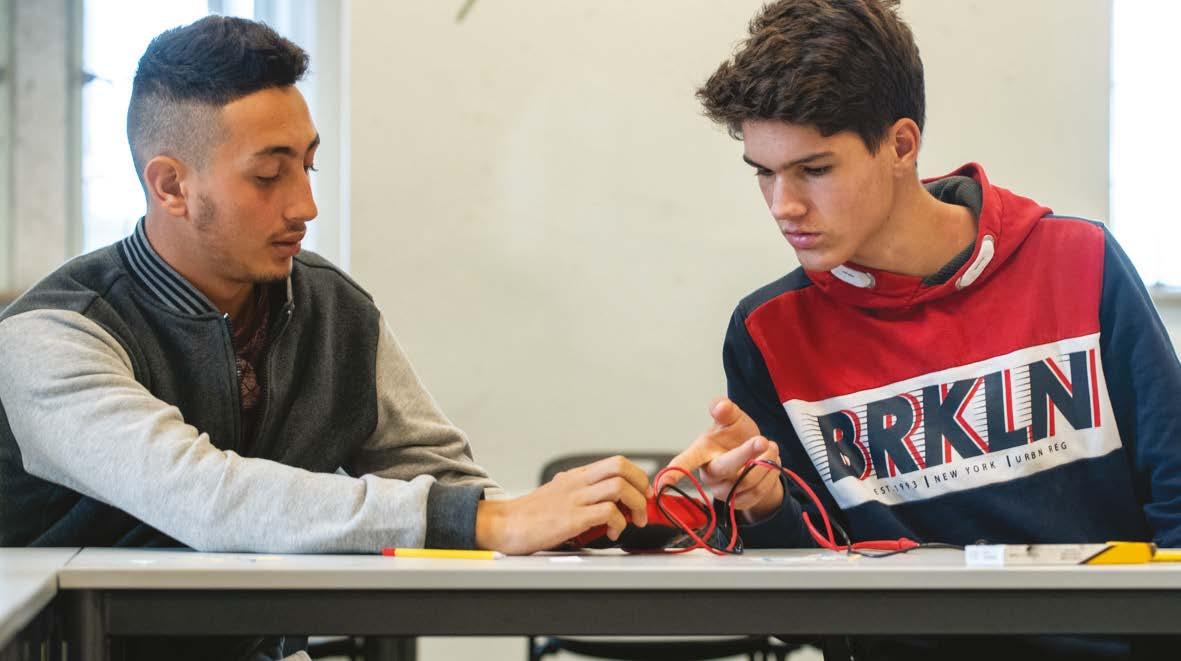


54 An education built www.ucr.nl info@ucr.nl +31(0)118 Follow us on

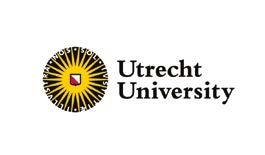



built around you! www.ucr.nl info@ucr.nl +31(0)118 655 500 on Social Media:
At University College Roosevelt you get an education built around you. You create your own program by choosing courses from nearly forty disciplines. From Art History to Life Science and from Economics to Robotics, there is always a combination that will suit you. In and outside your classes you interact with engaged professors and motivated students. Our tight-knit community enables you to find and explore your passions and interests while enjoying a wonderful student life in Middelburg, the Netherlands.
Discover your passions, curriculum, choose

ARTS & HUMANITIES
Antiquity & Archaeology
Art History
Film, Theater and Media Studies
History
Linguistics
Literature
Musicology
Music Performance
Philosophy
Religious Studies
Rhetoric & Argumentation
ENGINEERING
Data Sciece & Artificial Intelligence
Electronics
Energy and Flow
Sustainable Materials
Project: Is this painting real?
At University College Roosevelt I was able to combine my passion for Art History with my interest in Material Science and Engineering. For my final Research Project, I wanted to tackle a real world problem. I’m using the electromicroscope to investigate pigments in old paintings to try and determine whether these pigments would have been used at the time. This can help identify fakes.
Interdisciplinary Projects

SOCIAL SCIENCE
Anthropology
Economics
Human Geography
Law
Politics and International Relations
Psychology
Research Methodology & Statistics
Sociology
56
“
passions, build your own choose from the following:
SCIENCE
Biomedical Science
Chemistry
Cognitive Science
Computer Science
Earth Science
Environmental Science
Life Science
Mathematics Physics




Premedical Program
Project: Get the best food
I’ve been working on finding ways to use drones to improve all kinds of agricultural processes. Think about checking fruit quality while it is still on the tree, but also being able to strategically put pesticides only on the plants that need it. My project incorporates aspects of Motion Planning, Computer Science, Artificial Intelligence and Robotics, Mechanical and Electrical Engineering. I also need to consider Economics and Ethics as technological development influences real people and society.
Project: Developing an artificial esophagus
Someone close to me has been suffering from cancer. I’ve been wanting to ease their pain for a long time, and am using my knowledge of Biomedical & Life Science combined with Material Science to develop an artificial esophagus. I’m looking forward to seeing this improve the situation for real life patients.
Become part of a close-knit community of 600 students and 80 faculty
Join a highly international university (65%) with more than 60 nationalities
Put together your own curriculum from close to 40 different disciplines

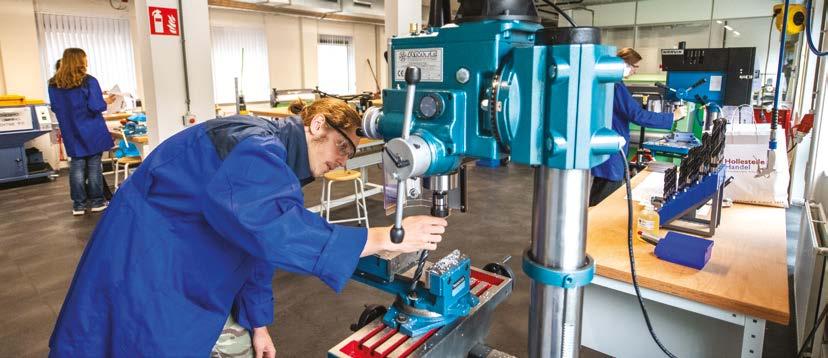
Live in guaranteed and affordable housing for the duration of your studies


Explore what Middelburg, the Netherlands and Europe have to offer

57
www.ucr.nl/ucr-101
“
“

IS NOW IS NOW The Future $761M IN ANNUAL RESEARCH EXPENDITURES TOP-20 PUBLIC RESEARCH INSTITUTIONS NATIONAL SCIENCE FOUNDATION
As one of the world’s top research universities, the University of Arizona seeks to answer today’s biggest questions. We’re embracing change and making the most out of cutting-edge technology to benefit students and communities. When you become a Wildcat, you’ll help us lead the way.
Getting Down to Business
Founded in summer 2023, the university’s AI Access and Integrity Working Group is leading conversations about AI. Its mission is to foster dialogue about the opportunities presented by AI in higher education.
artificialintelligence.arizona.edu
EXPLORE DEGREE PROGRAMS

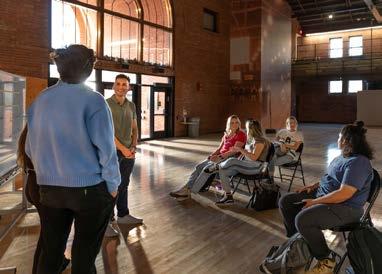
From entrepreneurship to electrical and computer engineering, our majors put you at the forefront of innovation. Explore our 150+ degree programs and find the one that’s right for you.
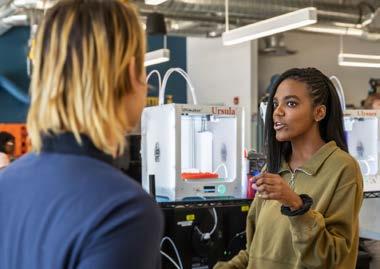
arizona.edu/degree-search

TOP 1% OF WORLD’S UNIVERSITIES CENTER FOR WORLD UNIVERSITY RANKINGS
AI IN ACTION AI IN ACTION
AT ARIZONA
Think AI is just about ChatGPT?
Think again. Arizona researchers are putting AI to use in groundbreaking research including Alzheimer’s treatments, astronomy, data processing, and so much more.
artificialintelligence.arizona.edu/news
Discover how AI technology and business come together in the Eller College of Management’s Artificial Intelligence Laboratory, which is the world’s only AI lab within a business school. From business analytics to cybersecurity training, the AI lab helps business students take their work to the next level.

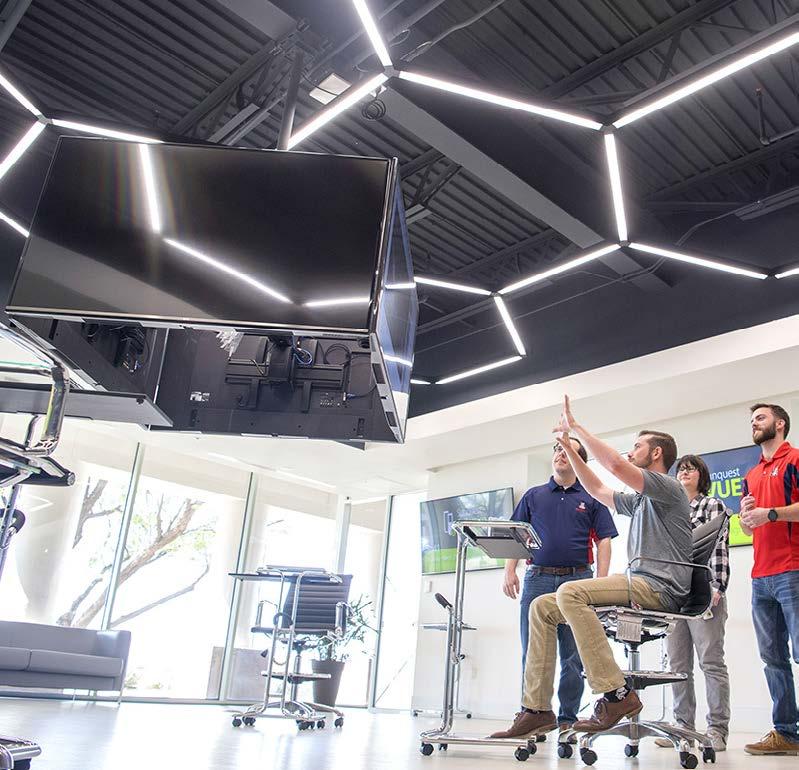
eller.arizona.edu/departments-research/centers-labs/artificial-intelligence
Put AI at the heart of your education with the College of Applied Science and Technology, which offers a BAS in Applied Computing with an emphasis in artificial intelligence, as well as a number of innovative online degrees for in-demand career fields.
azcast.arizona.edu

60
4 YEARS OF ENGLISH
4 YEARS OF MATHEMATICS
3 YEARS OF LAB SCIENCE
2 YEARS OF THE SAME SECOND LANGUAGE
2 YEARS OF SOCIAL SCIENCES (1 YEAR OF AMERICAN HISTORY)
1 YEAR OF FINE ARTS OR 1 YEAR OF CAREER AND TECHNICAL EDUCATION (CTE)
AT ARIZONA.EDU/APPLY
Applicants must have an unweighted overall grade point average of 2.0 (A = 4.0) in each subject area and may not have more than two deficiencies. Students may not have deficiencies in both math and laboratory science or in the same subject area.

I f you’re in the top 25% of your class and have completed the core requirement s or have a 3.0 unweighted core G PA through your six th semes ter, you’re assured admission to the uni ver sit y

PLAN A VISIT
The sights, the people, the feeling you get on campus – the best way to picture yourself here is by planning a visit. Chat with current students, learn about our history and traditions, and fall in love with our beautiful campus. arizona.edu/visit

61 OFFICE OF UNDERGRADUATE ADMISSIONS PO Box 210073, Tucson, AZ 85721-0073
| arizona.edu/admissions Find your personal University of Arizona contact at go.arizona.edu/find-recruiter CONNECT WITH US uazadmissions universityofarizona
520.621.3237
ADMISSION REQUIREMENTS
START START YOUR JOURNEY TODAY
If you chose A, you are correct. It is all ChatGPT.

Can You Tell When It Is Written By AI?
 by Cynthia Zhang, Year 12, Auckland
by Cynthia Zhang, Year 12, Auckland
I feel lucky to live during a technological age. From spelling checks, to language translators, or even full essay writing, AI does it for us. And according to a Teaching Times article, 67% of students use some sort of AI in an academic setting. People often assume the worst. They think that students are all using ChatGPT to generate essays when most students are actually using AI such as Google Translate, auto correct or Grammarly (I can testify, auto correct is a lifesaver).
Teachers warn us, “We can tell if you’ve used AI.” But can they really? To test if this theory is true, I conducted
my own very “scientific” research. I chose a topic that gave no advantage to subject specialists: why vanilla is the best ice cream flavour (an undeniable fact). I presented my teachers with writing: one generated by AI and one written by me. It turns out that 79% of teachers could tell the difference. Can you? Why not test your skills below. It seems that computers can’t replace individualistic human text just yet. Most teachers were able to identify the ‘lack of opinion’, ‘emotionless’ and ‘errorfree’ writing of artificial intelligence. And if they can’t, plagiarism checkers like Turn-It-In can.


Vanilla is often hailed as the best ice cream flavor for its timeless and versatile appeal. Its simplicity is its strength, allowing the pure, creamy essence of high-quality vanilla beans to shine through. This classic flavor serves as the perfect canvas for a multitude of toppings and mix-ins, enabling endless customization to suit individual preferences. Its mild sweetness and comforting aroma evoke feelings of nostalgia and warmth, making it universally loved. Whether enjoyed on its own or as a complement to a variety of desserts, vanilla ice cream’s understated elegance and widespread popularity make it the undisputed champion of frozen treats.
Ironically teachers now use artificial intelligence to check for artificial intelligence even though many of them view it as some all-knowing mastermind that could take over the world.
In all seriousness, with so much knowledge available to us, it is important we remember to be responsible for our own academic integrity so we don’t become too reliant on technology. Maybe one day computers will be able to mimic the human psyche, but until then it’s probably best to write your own homework and not become too reliant on technology (in case AI actually does end up taking over the world).
Vanilla ice cream, sometimes said to be the most boring and bland flavour of ice cream. A phrase that completely undermines the taste of vanilla. In today’s maximalism extravaganza, we often forget to appreciate the simple things. Vanilla, the original flavour is the foundation for all other ice cream flavours. Not too sweet, creamy, and almost floral, vanilla is a delicacy that can be enjoyed by all. Although it may not present as an exotic or surprising flavour, it presents a modest and satisfying taste. Whether paired with pie, crumble or cake, vanilla ice cream should be appreciated for its simplicity, consistency and comfort.
63 See the left page for the answer
Friendship 2.0: Is AI A Better Kind Of Friend?
By Victoria Deckard, Grade 9, Bloomington South High School, Indiana
Human interactions are intricate, with layers of hidden thoughts and emotions bubbling beneath the surface.
Building friendships requires time and trust to uncover the genuine person beneath the facade. Understanding others’ intentions is challenging, as we can’t know what’s in their minds.
Given these emotional complexities, wouldn’t it just be easier to rely on AI as a trusted friend?
It is always available, it won’t share your secrets, and it will know something about every interest you have.
According to Aristotle, there are three kinds of friends: useful friends, friends, with shared interests, and true friends. Emotional connections are foundational in each.
Useful Friends
Useful friends help you because they want you to do well. AI is incredibly useful across multiple facets,
but unlike a friend, it has no intentions behind its help. It’s programmed to analyze existing data, and its responses are devoid of personal investment and emotion.
While it may seem that useful friends don’t require emotional connections, AI is fundamentally different. It assists because that’s its job.
AI cannot have interests or emotions, preventing it from forming emotional bonds. Regardless of the type of

64
friend, they should want to help you because they care about you.
Friends with shared interests
Friends with common interests must have emotions to have interests. AI can engage in conversations about our interests, but it cannot share or exchange interests on an emotional level. For example, if you enjoy songwriting, AI provides information on the topic, and may create music, but it won’t share your passion or joy of the creative process.
True friends
Aristotle said true friends are alike in virtue and
wish each other well. True friends are useful and share interests. You each have a personal investment in the relationship.
I care about my friend’s lives and want them to be happy and prosperous.
I can’t share jokes with AI hoping for a laugh or confess my dark secrets and expect understanding.
Aristotle is still relevant
So, it seems that Aristotle’s thoughts are still valid. It is impossible to be friends with AI. It can’t feel emotions, and I can’t connect with it emotionally.
The complexity of our emotions is what makes
human relationships beautiful.
It can be challenging to open up to strangers, but when we do, it can lead to deep and meaningful relationships, a unique aspect of being human.
Discovering someone who cares about us, understands us, and shares our interests is exhilarating.
Such connections are built on shared experiences and trust and offer a sense of belonging and connection. So, although AI may offer an uncomplicated presence, I don’t see it will ever be possible to hope of real friendship with AI.
Adapted from the BBC/Open University video “Five things you really need to know about AI”




AI isn’t as new as you may think
Warren McCulloch and Walter Pitts defined the first mathematical computational model similar to a neural network in 1943. They created the first artificial neuron model. Since then others have built on their work to create the neural network systems that we now know today.
AI cannot feel or think AI often makes things up
When you ask AI like ChatGPT a question, it does a good job of providing a response that is convincingly human.
It is easy to believe it understands what it is saying, but it is using probability to predict a response.
So remember, that at the moment, AI can’t think or feel.
When chat bots make things up, it is known as an AI Hallucination. It generates rather plausible replies but cannot assess the truthfulness of its responses. So, anyone using generative AI needs to remember that these mistakes can be spotted by someone who knows the topic.
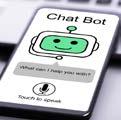

AI can be biased, racist and sexist AI has many strong benefits.
If AI is trained on data that is racist, biased, or hateful, then it’s output will be too. For example in 2016 Microsoft launched an experimental chat bot Tay. But Tay was quickly shut down after making racist and offensive comments after interacting with users.
In amongst all the caution and calls for improved safety features, it is true that AI has many potential benefits. It can enhance and speed up work in many areas such as healthcare or programming.
It is up to the users and creators to work together to decide how and when it should be used, if at all.
65


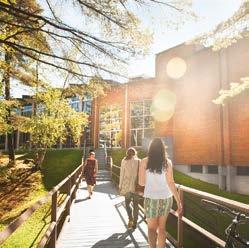


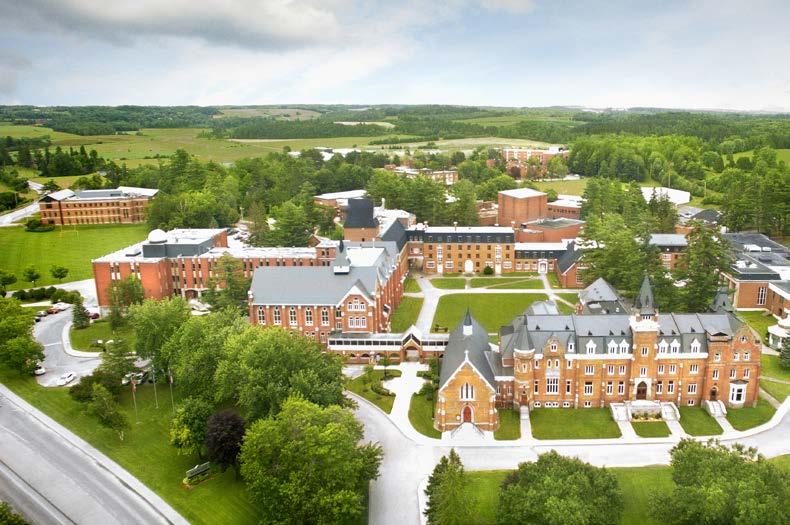

66
Located in the picturesque Eastern Townships region of Quebec, Bishop’s is a one-of-a-kind institution in Canada and one of only three English speaking universities in Quebec. Founded in 1843 and modelled after the colleges of Oxford, our approach to education can be summed up in one word: engagement.



We focus on the proven liberal education model where Bishop’s connects students to an array of outstanding experiential learning opportunities, including internships, co-ops, practicum, and exceptional training experiences.
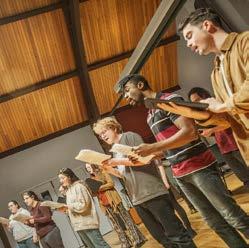
These opportunities enable students to strengthen their skills and obtain valuable experiential and professional experience, while completing their academic studies. Our students enjoy being able to specialize in their field, while still having flexibility to choose courses from other disciplines. We actually encourage them to explore multiple interests!


67



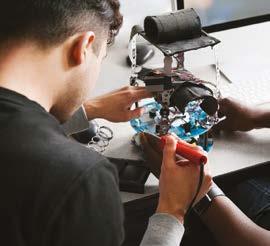



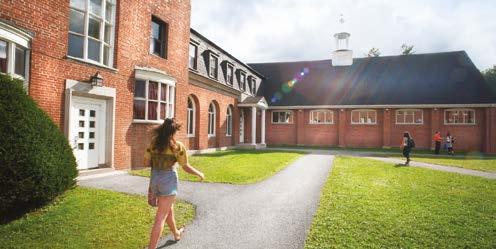
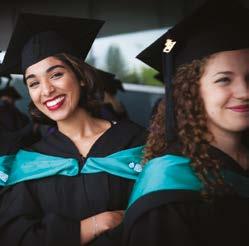
68
With approximately 2,900 students representing nearly 80 countries, we offer a learning environment where classes are intimate, and students receive personalized attention from their professors. We are an English university in a French community so while students do not need to know a word of French, our environment offers the ability to learn, enhance or become fully bilingual in both languages.


Bishop’s creates a unique social environment for its students, one that fosters personal growth. This supportive atmosphere nurtures students, and helps transform them into confident and skilled leaders, ready to make a difference in this world. Outside of class, students get very involved in campus life, which creates a wonderful sense of community. A plethora of activities and facilities exist both on campus and in the general area. A newly renovated recreation and athletics facility, over 120 km of hiking and biking trails, plus two theatres, art gallery, music recital and practice facilities, convenience store, bookstore, cafes, two libraries, seven residences, medical clinic, and much more.

Be Curious. Be Purple. BU.



69
If you are looking for an educational experience that is engaging, personal and transformational, look no further than Bishop’s University.
Come Join World’s #2 Young Uni HKUST!
2nd in World’s Top 600+ Young Universities in Times Higher Education Young University Rankings 2023
30th in the world Global Employability Ranking 2022 (No. 1 in Hong Kong, No. 3 in Greater China)
7th Asia’s Top 500+ Universities (No. 3 in Hong Kong) in Times Higher Education Asia University Rankings 2023

Extended Major in Arti cial Intelligence (Major +AI)



To stay abreast of the evolving AI landscape, HKUST has introduced the innovative Major+AI program, aligning with the swiftly changing trends since Fall 2021. Through the program, students gain AI skills at its peak, avoiding a four-year commitment to a volatile eld. The curriculum blends AI applications with their chosen majors, fostering interdisciplinary problem-solving. Design Thinking, AI seminars, and real-world projects re ne skills. Adding 21-24 credits (about one course per term), students enhance their job market edge, showcasing proactive learning valued by employers.

AI excels at solving complex issues beyond human capability, such as data analysis and medical advancements. It also automates repetitive tasks, liberating humans for creative pursuits. Additionally, AI's emerging role in creativity holds vast potential.
In order to adopt such systems that can be smarter than us then they need to be implemented with great awareness. Regulations on the usage of AI and the Ethics behind the usage of data have to be monitored to ensure the safe development of AI that leads to improvement in our human society and not lead to a catastrophic turn to it.
I don't see AI completely replacing humans, just increasing the barrier of entry into elds. In my summer internship, I had the opportunity to work with ChatGPT and Midjourney AI quite extensively and I learnt that while these tools are good at what they do, it is limited by the skill of the user. AI simply boosts the rate where we can and we have to level up our skills.

There will be many questions and the eld will keep growing faster than we could keep up with. I recommend to focus on fundamentals, understand what AI is, what it can do, and what is the smallest thing you can do with AI to improve people's lives.
Speedy
To students who plan to take Major + AI, make sure that you are actually interested in AI. Don’t take AI just because it’s important but take it because you have a genuine interest and a desire to dive deeper into the realm of AI. Once you have decided to study AI, enjoy the ride as you dive in to the complex and vast world of arti cial intelligence. Remember to commit on your AI major, establish a solid foundation in AI and never lose the ame of curiosity within yourself.
Val
Arti cial intelligence is an ever-evolving eld, and HKUST is fully embracing its existence both inside and outside the curriculum. This makes it the perfect opportunity to take advantage of the university’s resources and gain rsthand experience of what AI is and what it is capable of.
 Siraj
Jurek
Siraj
Jurek
Scholarships at HKUST

Academic Admissions Scholarships
▪ IB Diploma
▪
GCEAL/International AL
▪ SAT/Advanced Placement Test
▪ Other Quali cations
▪ Scholarships for International/Asian Olympiad Medalists
Beyond Academic Admissions Scholarship (BAAS)
Opportunities at HKUST
▪ Research under the Undergraduate Research Opportunities Program (UROP)
▪ Innovate through the Undergraduate Student-initiated Experiential Learning (USEL)
▪ Start your business with our Entrepreneurship Center and many more...


Sep 25 Application Opens Nov 21 Early Round Application Deadline Jan 9 Main Round Application Deadline 2024 Intake timeline: Program Info Check out the requirements for International Quali cations Join us at our upcoming recruitment event! https://join.hkust.edu.hk/whats-on 23 Minors 48+ Majors Science Engineering Humanities and Social Science Academy of Interdisciplinary Studies Business and Management
Looking For Ways To Learn More?
The École polytechnique fédérale de Lausanne (EPFL) is a research institute and university in Lausanne, Switzerland, specializing in the natural sciences and engineering.
Take a look at this great online resource from the EPFL Extension School. They have created 30 short modules available for anyone to read on a variety of AI related topics.
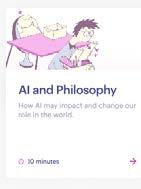
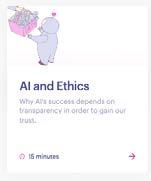
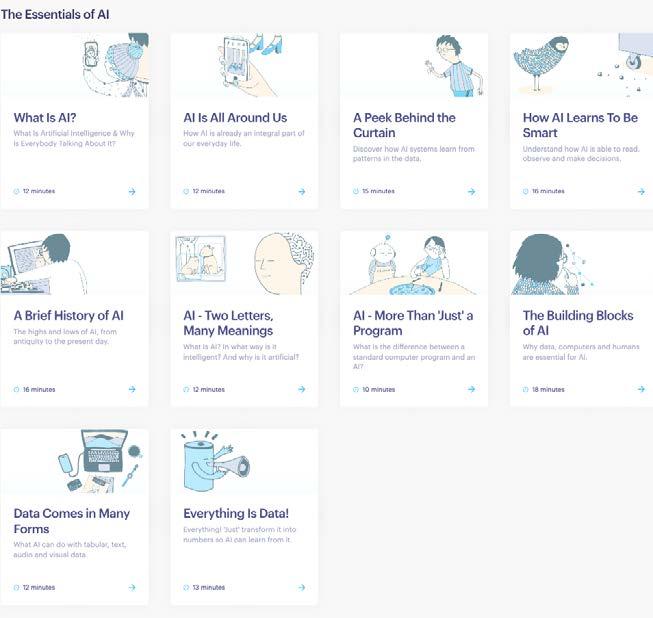
74
Here are some great opportunities to demonstrate your interest in artificial intelligence and machine learning.
Complete this Cognizant online job simulation to earn a certificate
Submit an essay to the Northeastern University London Essay Competition
Create your own feminist chatbot with this Future Learn course
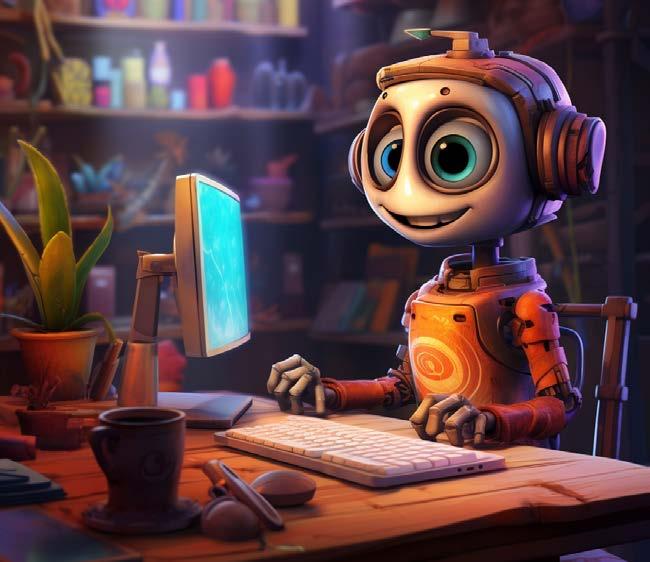
Create Your own research project like this one with Polygence
Sam’s advice on teaching yourself about Neural Networks and Python
Take part in a CCIR research program on Machine Learning, AI, Natural Language Processing
Enrol in Bocconi’s summer school program on Machine Learning and Artificial Intelligence

75
This picture was created by AI on Midjourney.
Guiding Students Towards Thriving Futures

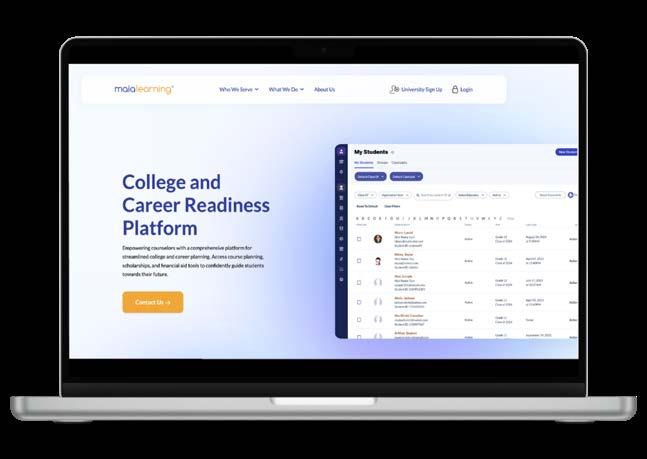



























































































 By Hannah Flitman, Grade 11, Berkeley Preparatory School,
Tampa
Stock picture by Uriel Mont from Pexels
By Hannah Flitman, Grade 11, Berkeley Preparatory School,
Tampa
Stock picture by Uriel Mont from Pexels

















































 Siraj
Jurek
Siraj
Jurek







